Foods That Help Repair Damaged Arteries
Arterial disease affects over 200 million people worldwide, leading to serious health complications such as heart attacks and strokes (World Health Organization). The cardiovascular system, comprising the heart and blood vessels, is responsible for circulating oxygen-rich blood throughout the body. Unfortunately, arterial damage often progresses silently, with symptoms appearing only in advanced stages. This late detection makes prevention and repair especially challenging, underscoring the importance of adopting dietary strategies that support vascular health and aid in the repair of damaged arteries.
1. Salmon
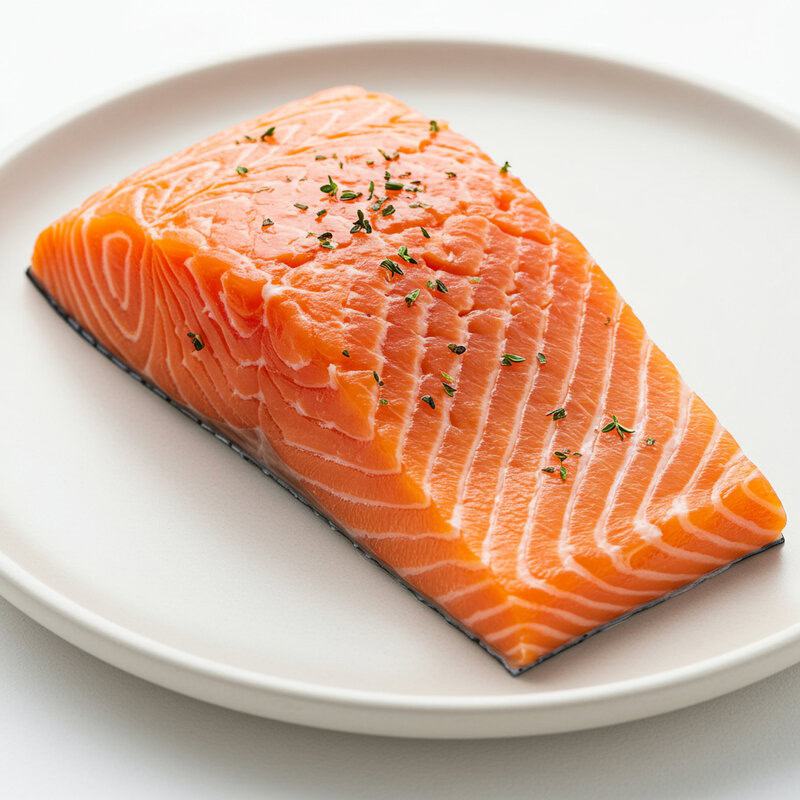
Salmon is widely recognized for its rich content of omega-3 fatty acids, particularly eicosapentaenoic acid (EPA) and docosahexaenoic acid (DHA), which play a vital role in reducing arterial inflammation and slowing the progression of plaque buildup (National Institutes of Health). These fatty acids support endothelial function and help decrease triglyceride levels, both of which are crucial for maintaining healthy arteries. Wild salmon generally contains higher levels of omega-3s and fewer contaminants compared to farmed salmon, making it the preferred choice for cardiovascular benefits (Healthline).
To incorporate salmon into a heart-healthy diet, aim for at least two servings per week. Grilling, baking, or steaming salmon preserves its nutrients without adding unhealthy fats. Pairing salmon with antioxidant-rich vegetables or whole grains can further enhance its artery-protective effects. Additionally, try using salmon in salads, wraps, or as a protein addition to grain bowls for variety and sustained heart health.
2. Walnuts
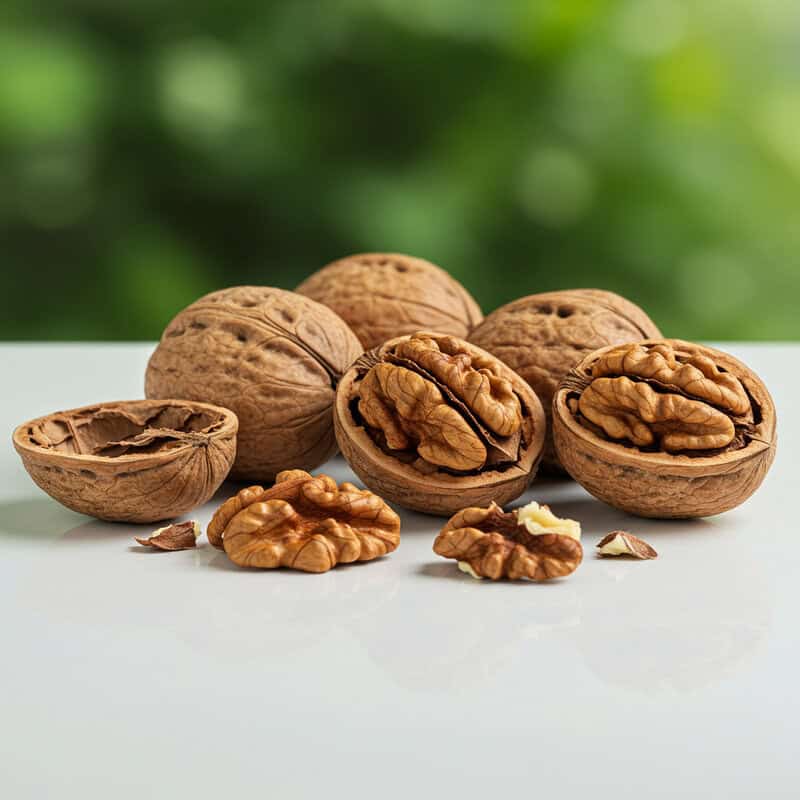
Walnuts are a powerhouse of plant-based omega-3 fatty acids, specifically alpha-linolenic acid (ALA), as well as potent antioxidants like polyphenols. These nutrients collectively help decrease arterial inflammation, combat oxidative stress, and improve the health of blood vessel walls (Harvard T.H. Chan School of Public Health). Several clinical studies have shown that regular walnut consumption is linked to better arterial flexibility and improved endothelial function, key factors in preventing atherosclerosis and promoting arterial repair (National Institutes of Health).
A recommended serving size is about one ounce, or a small handful, of walnuts per day. This portion provides a meaningful amount of healthy fats and antioxidants without excessive calories. Walnuts are versatile: enjoy them as a snack on their own, sprinkle them over salads, stir into oatmeal, or blend into smoothies for a heart-smart boost. Combining walnuts with other nutrient-dense foods amplifies their artery-supporting benefits and makes for a satisfying, heart-healthy addition to any meal plan.
3. Extra-Virgin Olive Oil
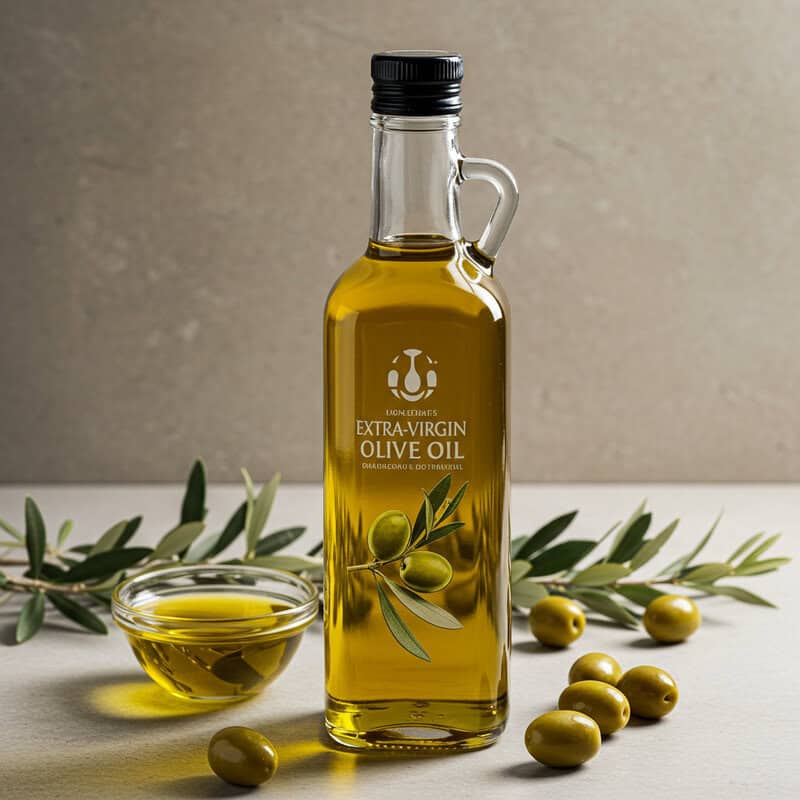
Extra-virgin olive oil is celebrated for its high content of monounsaturated fats and polyphenols, both of which are instrumental in protecting arterial health. Monounsaturated fats help lower bad LDL cholesterol while maintaining good HDL cholesterol, reducing the risk of arterial plaque formation. Olive oil’s polyphenols, powerful antioxidants, reduce oxidative stress and inflammation in arterial walls (National Institutes of Health).
The benefits of olive oil are well documented in populations following a Mediterranean diet, which is associated with a significantly lower incidence of cardiovascular disease and improved vascular function (The New England Journal of Medicine). When choosing olive oil, opt for extra-virgin varieties, as they retain higher levels of beneficial polyphenols and healthy fats. To maximize heart and artery benefits, use extra-virgin olive oil as a salad dressing, drizzle over cooked vegetables, or swap it for butter in recipes. Store olive oil in a dark, cool place to preserve its nutritional value and flavor.
4. Berries

Berries are among the most antioxidant-rich foods, with compounds such as anthocyanins playing a key role in reducing arterial inflammation and supporting vascular health. These antioxidants help neutralize free radicals, decrease oxidative stress, and protect the delicate endothelial lining of the arteries (National Institutes of Health). Different berries offer unique nutritional benefits: blueberries are especially high in anthocyanins, while strawberries provide an abundance of vitamin C and fiber. Both have been shown in studies to improve arterial function and reduce blood pressure (ScienceDaily).
Incorporating berries into your daily diet is easy and delicious. Add a handful of fresh or frozen berries to morning cereals, yogurts, or smoothies, or use them as a colorful topping for salads and whole-grain pancakes. Berries can also be enjoyed as a naturally sweet snack or blended into sauces for savory dishes. For optimal heart and artery benefits, aim for at least three servings of berries per week.
5. Dark Leafy Greens
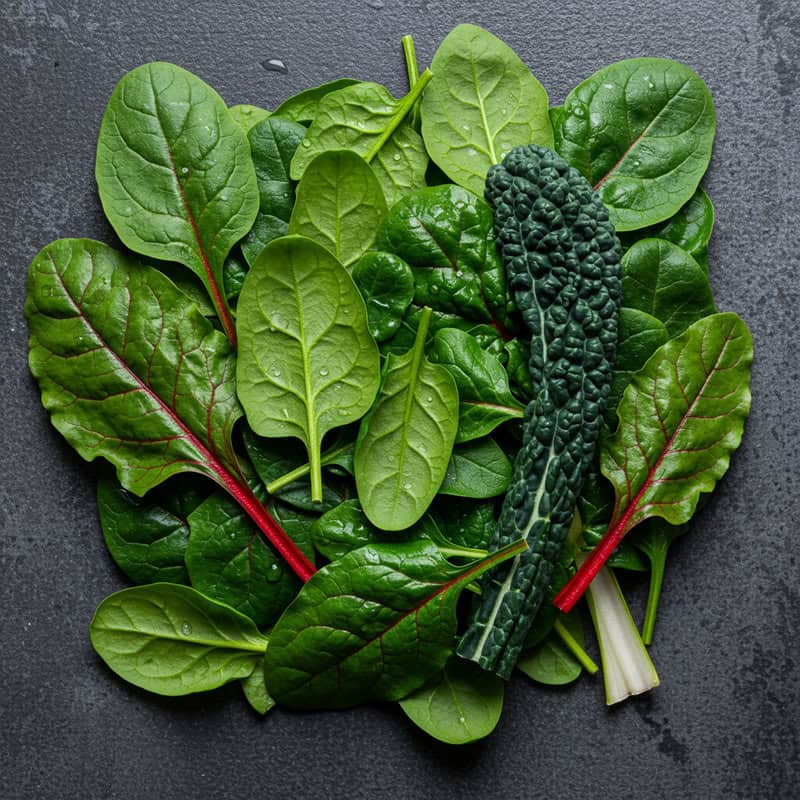
Dark leafy greens such as spinach, kale, and Swiss chard are nutritional powerhouses that support arterial repair. These greens are rich in natural nitrates, which the body converts to nitric oxide—a molecule that helps relax blood vessels, improve circulation, and reduce arterial stiffness (National Institutes of Health). Additionally, they provide vitamin K, an essential nutrient for maintaining healthy blood vessel walls and reducing the risk of arterial calcification (Harvard T.H. Chan School of Public Health).
Research has shown that regular consumption of dark leafy greens improves endothelial function, lowers blood pressure, and supports overall vascular health. To add more greens to your meals, try blending spinach or kale into smoothies, sautéing them with garlic and olive oil, or tossing fresh greens into salads and grain bowls. Steaming or lightly cooking greens enhances nutrient absorption while preserving their arterial benefits. Aim to include at least one serving of dark leafy greens daily for optimal artery support.
6. Avocado
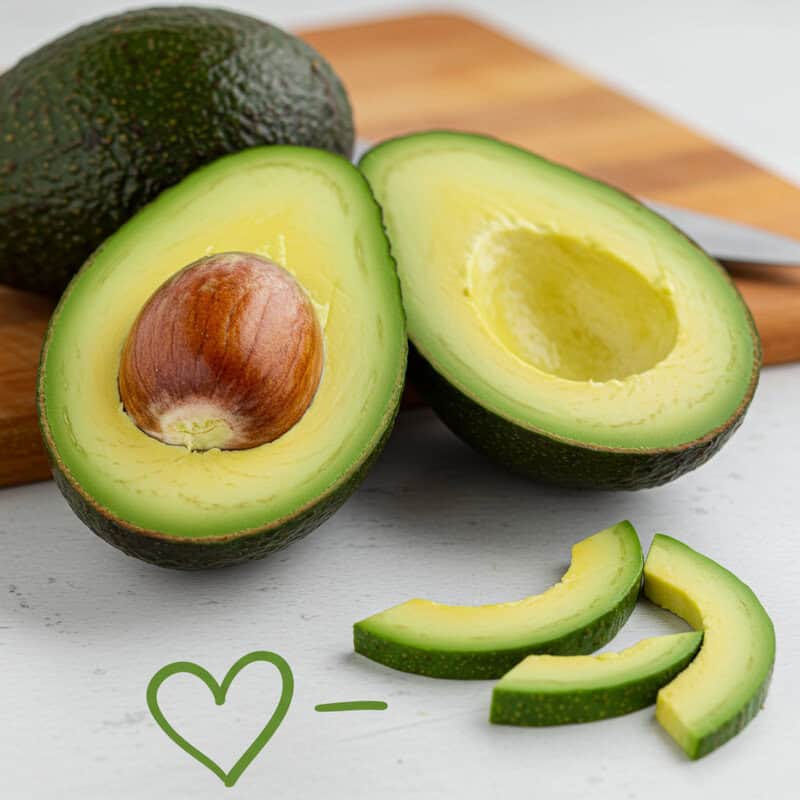
Avocados are a nutrient-dense fruit packed with heart-healthy monounsaturated fats, primarily oleic acid, which have been shown to reduce bad LDL cholesterol and increase good HDL cholesterol levels, supporting arterial repair and resilience (National Institutes of Health). Additionally, avocados are an excellent source of potassium—a mineral essential for maintaining healthy blood pressure and supporting vascular function. One avocado contains more potassium than a banana, helping to counteract the blood pressure-raising effects of sodium (Healthline).
Compared to other fat sources such as butter or margarine, avocados provide beneficial fats without trans fats or excessive saturated fats that can harm arteries. Incorporating avocado into your diet is simple and versatile: slice it onto whole-grain toast, mash it for guacamole, add it to salads, or blend it into smoothies for creamy texture. Avocado can also be used as a healthy replacement for mayonnaise or creamy dressings, making meals both heart- and artery-friendly. Aim for a quarter to half an avocado per serving to gain maximum health benefits without excessive calories.
7. Tomatoes

Tomatoes are a rich source of lycopene, a powerful antioxidant known to reduce oxidative stress and inflammation within the arteries. Lycopene helps protect the endothelial cells lining blood vessels, thereby preventing the oxidation of LDL cholesterol—a key step in the development of arterial plaque (National Institutes of Health). Studies have shown that higher blood levels of lycopene are associated with decreased risk of cardiovascular disease and improved arterial function.
Interestingly, cooking tomatoes enhances the bioavailability of lycopene, making it easier for your body to absorb compared to raw tomatoes (Harvard Health). This means tomato-based sauces, soups, and roasted tomatoes offer even greater antioxidant benefits. For optimal artery protection, aim to include a variety of tomato preparations in your diet: enjoy fresh tomatoes in salads and sandwiches, and add cooked tomatoes to pasta dishes, stews, and salsas. A daily serving of one medium tomato or half a cup of cooked tomatoes can help maximize their heart-healthy effects.
8. Garlic
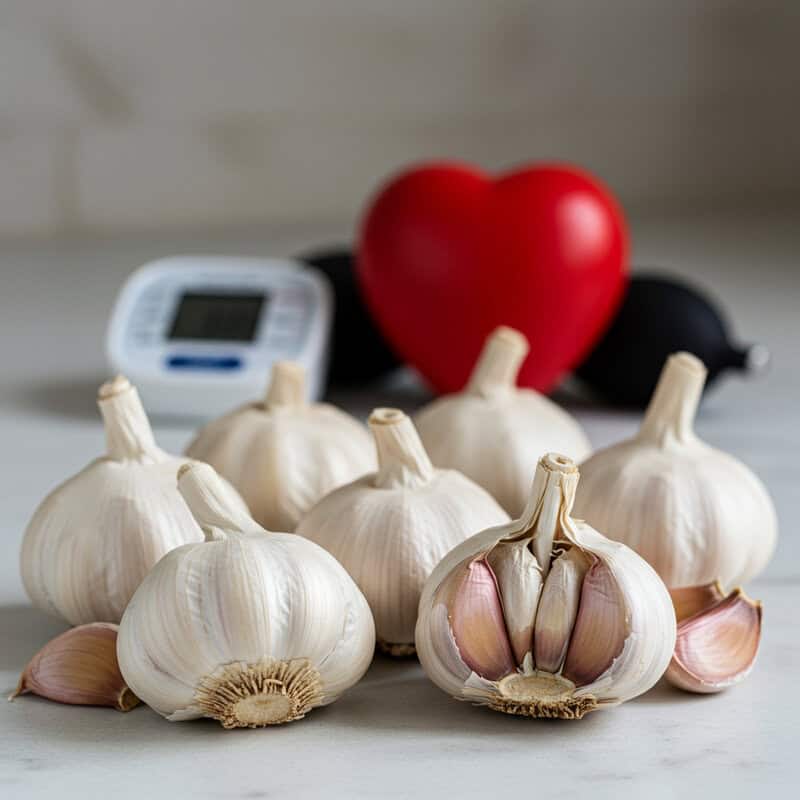
Garlic contains allicin, a sulfur compound that has been widely studied for its cardiovascular benefits, particularly its ability to lower blood pressure and reduce arterial stiffness. Allicin helps relax blood vessels, enhance blood flow, and decrease inflammation in arterial walls, thereby contributing to the repair and maintenance of healthy arteries (National Institutes of Health). Regular garlic consumption has been linked to significant improvements in both systolic and diastolic blood pressure, which are important factors in reducing the risk of atherosclerosis.
While garlic supplements are popular, research suggests that fresh garlic may offer more potent cardiovascular benefits due to the presence of active allicin formed when garlic is crushed or chopped (Healthline). Including fresh garlic in meals can be both flavorful and heart-smart. Try adding minced garlic to salad dressings, stir-fries, roasted vegetables, or soups. For maximum benefit, allow chopped garlic to sit for a few minutes before cooking to activate its beneficial compounds. Incorporating one to two cloves of fresh garlic daily can support arterial health and add zest to your diet.
9. Flaxseed
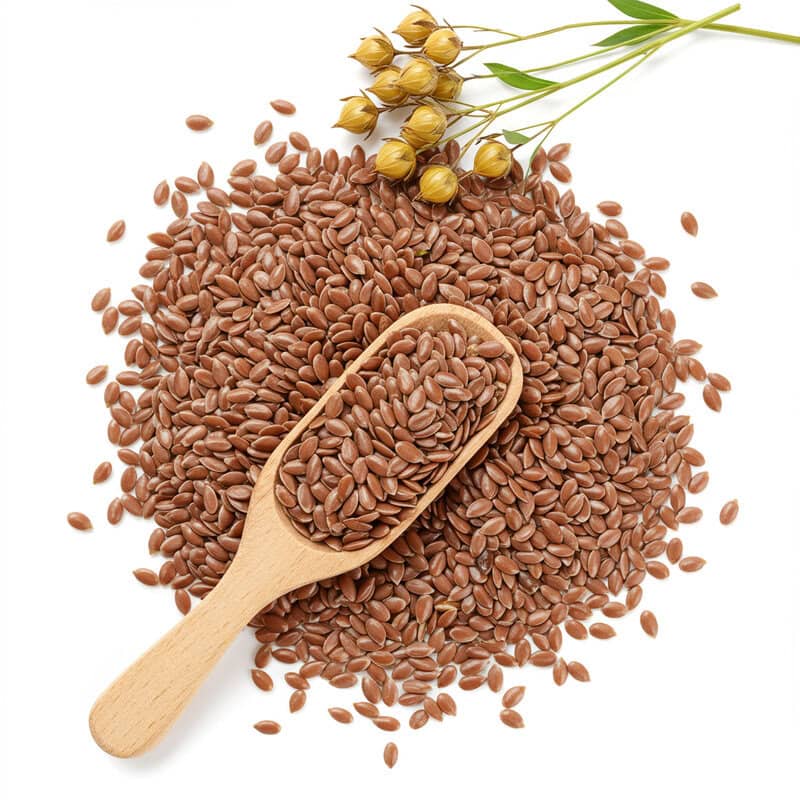
Flaxseed is an exceptional source of plant-based omega-3 fatty acids (especially alpha-linolenic acid, or ALA) and lignans, which are polyphenols with powerful antioxidant and anti-inflammatory effects. These nutrients help protect arterial walls, reduce inflammation, and decrease the risk of atherosclerosis (National Institutes of Health). Clinical trials have shown that flaxseed consumption can significantly lower total and LDL cholesterol, both of which are critical for arterial repair and overall cardiovascular health (PubMed).
Adding flaxseed to your diet is easy and convenient. Ground flaxseed is best, as whole seeds may pass through the digestive tract undigested. Sprinkle ground flaxseed over oatmeal, yogurt, or salads; blend it into smoothies; or mix it into homemade breads and muffins. Just one to two tablespoons per day provides substantial heart-protective benefits. Store flaxseed in the refrigerator to preserve its freshness and nutritional value. Incorporating flaxseed regularly is a simple, effective way to support artery health and enhance your overall diet.
10. Oats

Oats are renowned for their high content of beta-glucan, a soluble fiber that plays a vital role in reducing cholesterol levels and supporting arterial health. Beta-glucan binds to cholesterol in the digestive system, helping to remove it from the body and thus lowering the risk of plaque formation in the arteries (National Institutes of Health). Regular oat consumption has been linked to significant decreases in total and LDL cholesterol, which are critical for repairing and maintaining healthy arteries.
When choosing oats, steel-cut and old-fashioned rolled oats are less processed and retain more nutrients and fiber compared to instant oats, which can contain added sugars and salt. For a heart-healthy breakfast, prepare steel-cut oats and top with berries, nuts, and a sprinkle of ground flaxseed. Overnight oats, made by soaking rolled oats in milk or a milk alternative, are another nutritious and convenient option. Incorporating oats into your morning routine is an effective, delicious way to promote arterial repair and long-term cardiovascular health.
11. Almonds
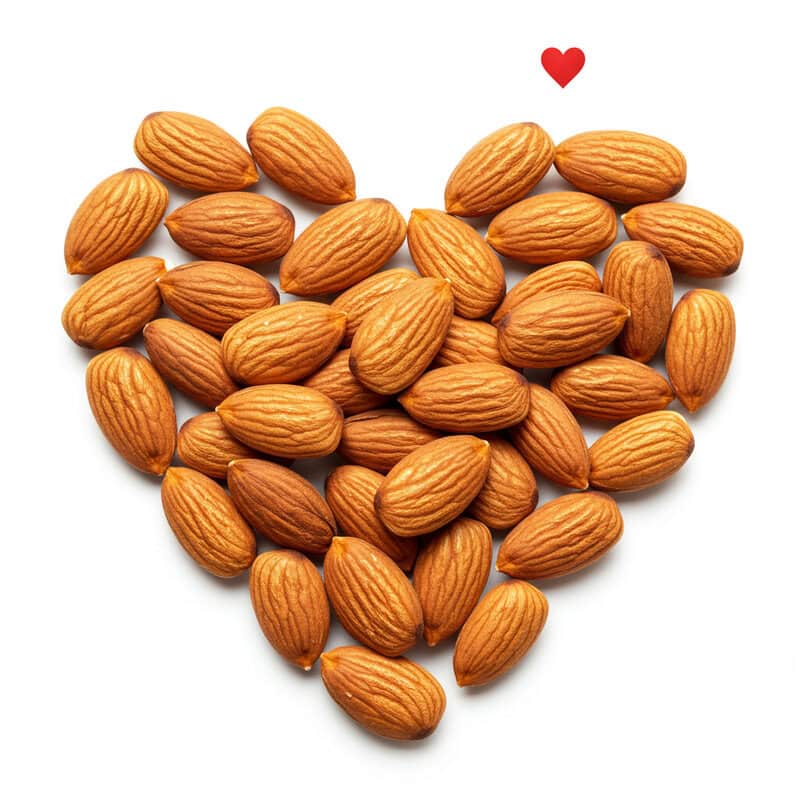
Almonds are packed with vitamin E, a powerful antioxidant that helps protect arterial walls from oxidative damage. They are also rich in heart-healthy monounsaturated and polyunsaturated fats, which play a vital role in lowering LDL cholesterol and supporting the repair and maintenance of healthy arteries (National Institutes of Health). Several studies have linked regular almond consumption to improved heart health, reduced arterial inflammation, and a lower risk of cardiovascular disease (Healthline).
Almonds are a convenient and versatile addition to a heart-healthy diet. Enjoy a small handful—about one ounce—of raw or lightly roasted almonds as a satisfying snack. They also make excellent toppings for oatmeal, yogurt, or salads, and can be blended into smoothies for added creaminess and nutrition. For variety, try almond butter spread on whole-grain toast or incorporated into homemade energy bars. Including almonds regularly in your meals can help strengthen artery walls and promote overall cardiovascular well-being.
12. Apples
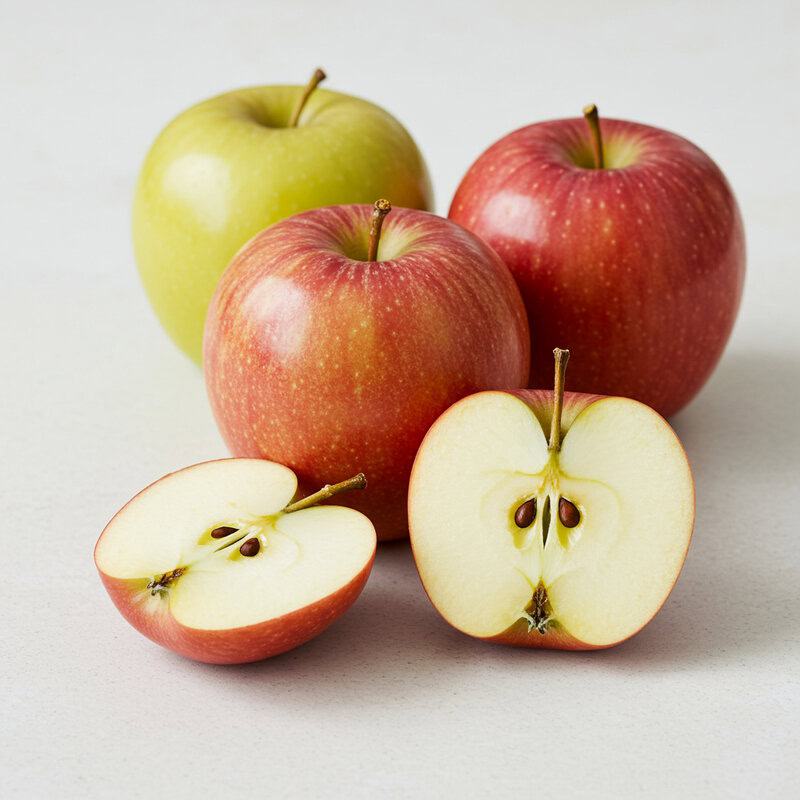
Apples are an excellent source of flavonoids—antioxidant compounds that help reduce inflammation and oxidative stress in arterial walls. Additionally, apples provide significant amounts of soluble fiber, particularly pectin, which has been shown to lower LDL cholesterol and support the repair and maintenance of healthy arteries (National Institutes of Health). Research indicates that regular apple consumption can improve vascular function and is associated with a reduced risk of cardiovascular disease (Healthline).
Different apple varieties provide similar heart-healthy benefits, though some, like Red Delicious and Granny Smith, are especially high in flavonoids. To make apples a daily habit, slice them into salads, pair with almond or peanut butter for a satisfying snack, or add diced apples to oatmeal and yogurt. Apples can also be baked with cinnamon for a healthy dessert or blended into smoothies. Eating one medium apple per day, with the skin for maximum fiber and antioxidant content, is a simple way to support arterial health and overall wellness.
13. Beans
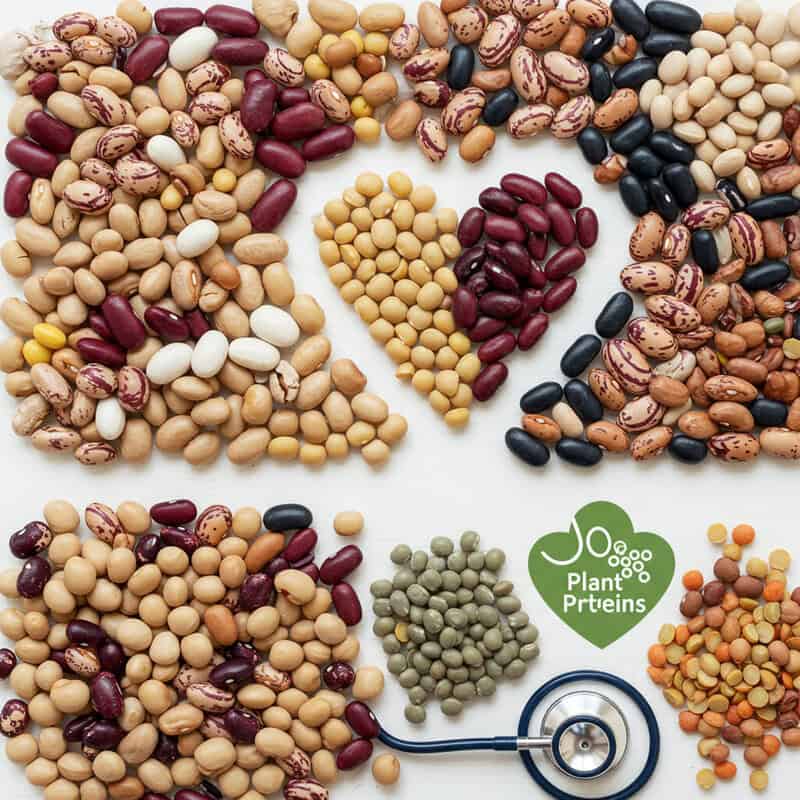
Beans are a nutritional powerhouse, loaded with soluble fiber and plant-based protein that work together to lower LDL cholesterol and support arterial repair. The soluble fiber in beans binds to cholesterol in the digestive tract, helping to remove it from the body and reduce the risk of arterial plaque buildup (National Institutes of Health). Additionally, their high protein content makes beans a heart-healthy alternative to fatty animal proteins, further promoting healthy blood vessels (Healthline).
Various bean types—including black beans, kidney beans, chickpeas, lentils, and navy beans—offer similar cardiovascular benefits, though some, like black beans and lentils, are particularly high in fiber and antioxidants. Beans are incredibly versatile and can be added to soups, salads, stews, and grain bowls. Pair beans with whole grains such as brown rice or quinoa for a complete protein source, or blend them into dips like hummus. Aim to include at least three servings of beans per week to help support healthy arteries and enhance overall heart health.
14. Chia Seeds
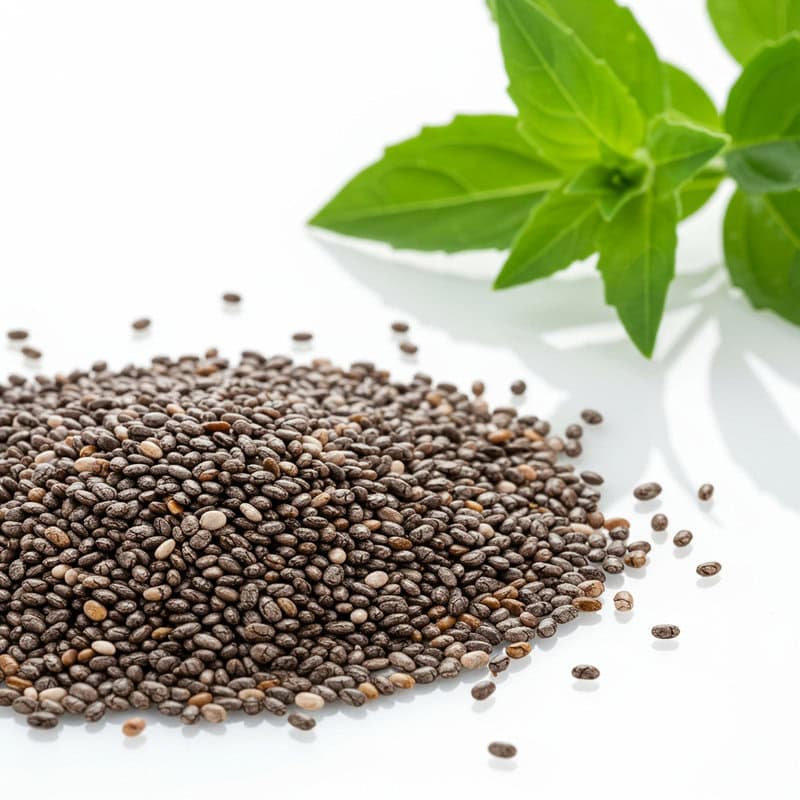
Chia seeds are a rich plant-based source of omega-3 fatty acids, particularly alpha-linolenic acid (ALA), which helps reduce inflammation and support arterial repair. They are also packed with soluble fiber, which aids in lowering LDL cholesterol and maintaining healthy blood vessels (National Institutes of Health). Regular chia seed consumption has been associated with improved cardiovascular markers and enhanced arterial health.
Compared to flaxseed, chia seeds offer similar heart-healthy benefits but do not need to be ground to access their nutrients, making them especially convenient. Both seeds are excellent sources of fiber and omega-3s, but chia seeds absorb liquid and form a gel-like texture, which makes them ideal for puddings and thickening smoothies (Healthline). To incorporate chia seeds into your diet, stir one to two tablespoons into yogurt, oatmeal, or smoothies, or prepare chia pudding by soaking them in milk or a milk alternative overnight. Their mild flavor allows them to blend seamlessly into both sweet and savory dishes, making it easy to boost your daily omega-3 and fiber intake.
15. Broccoli

Broccoli is a cruciferous vegetable renowned for its high levels of antioxidants, vitamins, and bioactive compounds such as sulforaphane. Sulforaphane has been shown to activate protective enzymes and reduce oxidative stress within arterial walls, promoting the repair and maintenance of healthy blood vessels (National Institutes of Health). Broccoli is also rich in vitamin C, vitamin K, and fiber, all of which contribute to improved cardiovascular health.
Research indicates that regular broccoli consumption may enhance endothelial function, which is essential for proper blood vessel dilation and overall vascular health (ScienceDaily). To preserve its nutrients and maximize its artery-protective benefits, try steaming or lightly sautéing broccoli instead of boiling, which can cause nutrient loss. Broccoli can be enjoyed as a side dish, added to stir-fries, blended into soups, or tossed into salads and grain bowls. Including broccoli in your diet several times per week provides a wide array of antioxidants and phytonutrients that help repair damaged arteries and support long-term cardiovascular health.
16. Carrots

Carrots are rich in carotenoids, particularly beta-carotene, which act as powerful antioxidants to counteract oxidative stress and inflammation in artery walls. These antioxidants help protect the endothelial lining and prevent the oxidation of LDL cholesterol, a critical step in the development of atherosclerosis (National Institutes of Health). Carrots also provide dietary fiber, which has been shown to lower cholesterol levels and support overall heart and vascular health.
Both raw and cooked carrots offer health benefits, but cooking can increase the bioavailability of carotenoids, making it easier for your body to absorb these protective compounds (Healthline). For a heart-healthy diet, enjoy carrots raw as a crunchy snack with hummus, slice them into salads, or add shredded carrots to wraps and sandwiches. Roasting, steaming, or boiling carrots as a side dish brings out their natural sweetness and maximizes their nutrient content. Aim to include carrots regularly in your meals to benefit from their carotenoids, fiber, and artery-supporting properties.
17. Turmeric

Turmeric, a golden-yellow spice commonly used in Indian cuisine, owes its potent anti-inflammatory and antioxidant properties to curcumin, its primary active compound. Curcumin helps reduce inflammation in arterial walls, combat oxidative stress, and may even inhibit the development of arterial plaque (National Institutes of Health). These effects are crucial for repairing damaged arteries and maintaining healthy vascular function.
Clinical research has shown that curcumin supplementation can improve endothelial function and reduce markers of inflammation in individuals at risk for cardiovascular disease (Frontiers in Pharmacology). To maximize turmeric’s benefits, pair it with black pepper, which enhances the absorption of curcumin. Add turmeric to curries, soups, rice dishes, or scrambled eggs for a flavorful boost. Turmeric can also be blended into smoothies or golden milk lattes for a nourishing beverage. Incorporating 1/2 to 1 teaspoon of turmeric daily in your meals or drinks is an easy way to take advantage of its artery-supportive and anti-inflammatory properties.
18. Green Tea
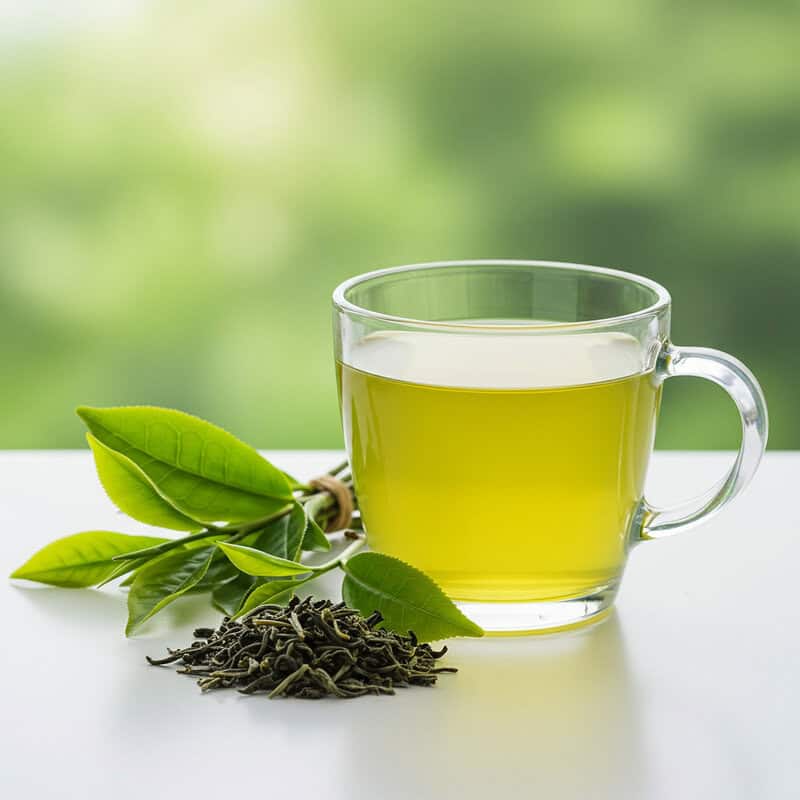
Green tea is renowned for its high concentration of catechins, a group of polyphenol antioxidants that have been shown to improve vascular health by reducing oxidative stress, lowering inflammation, and enhancing endothelial function. Catechins help relax blood vessels, reduce arterial stiffness, and inhibit the oxidation of LDL cholesterol, all of which are crucial for repairing and maintaining healthy arteries (National Institutes of Health). Consuming green tea regularly has been associated with a lower risk of cardiovascular disease and improved arterial flexibility.
Compared to black tea, green tea contains higher levels of catechins due to less oxidation during processing, offering greater vascular benefits (Healthline). To brew green tea for maximum antioxidant retention, use water just below boiling (about 175-185°F or 80-85°C) and steep for 2-3 minutes. Over-steeping can lead to bitterness and reduce the tea’s beneficial properties. Enjoy green tea plain or with a squeeze of lemon for added flavor and absorption of antioxidants. Aim for two to three cups per day to support arterial repair and cardiovascular health.
19. Red Grapes

Red grapes are packed with powerful antioxidants, the most notable of which is resveratrol. Resveratrol has been shown to protect the endothelium (the inner lining of blood vessels), reduce arterial inflammation, and inhibit the oxidation of LDL cholesterol, which plays a key role in the development of arterial plaque (National Institutes of Health). Regular consumption of red grapes has been linked to improved arterial flexibility and reduced risk of cardiovascular disease.
When comparing whole red grapes to grape juice, whole grapes offer more health benefits due to their fiber content and lower sugar concentration. Grape juice, especially if sweetened, may contain added sugars and fewer beneficial compounds, making whole grapes the better choice for arterial support (Healthline). Enjoy red grapes as a snack, add them to salads for a burst of sweetness, or freeze them for a refreshing treat. Incorporating a cup of red grapes several times per week can provide your arteries with resveratrol and other polyphenols that support vascular repair and long-term heart health.
20. Pomegranate
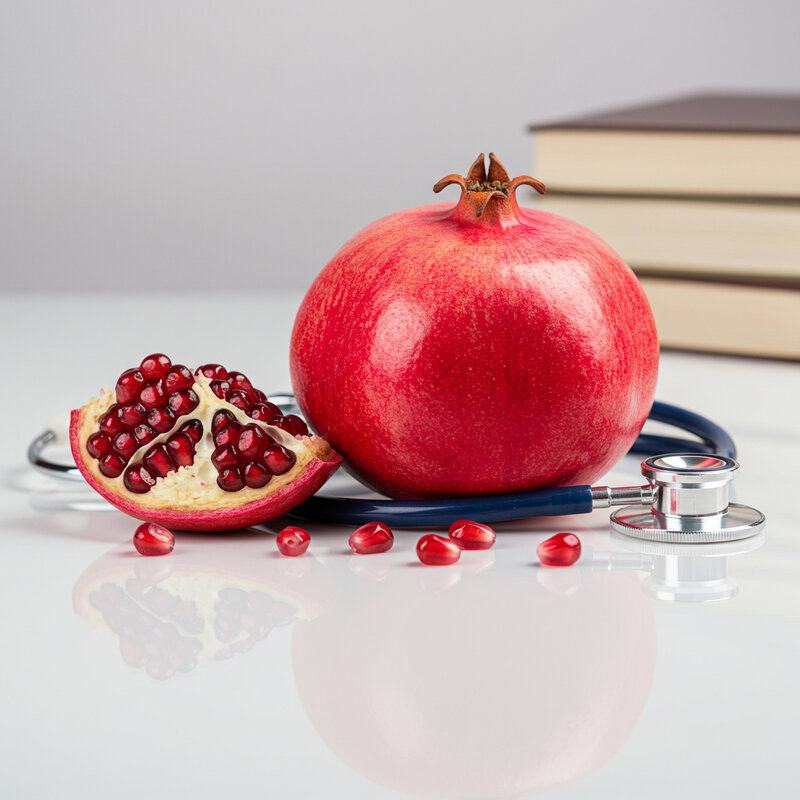
Pomegranate is rich in punicalagins, potent antioxidants that have demonstrated remarkable effects on reducing arterial plaque and enhancing endothelial function. Research indicates that punicalagins help decrease oxidative stress and inflammation in the arteries, while also promoting the reversal of existing plaque buildup and improving blood flow (National Institutes of Health). Regular pomegranate consumption has been associated with a reduction in atherosclerosis risk and better overall vascular health.
When choosing between pomegranate juice and fresh seeds (arils), fresh seeds are often preferable because they contain more fiber and less sugar than most commercial juices, which can be high in added sugars (Healthline). To incorporate pomegranate into your diet, sprinkle the seeds over salads, oatmeal, or yogurt for a crunchy and tangy addition. Pomegranate seeds can also be mixed into grain bowls or used as a garnish for roasted vegetables. For a quick antioxidant boost, enjoy a small glass of pure pomegranate juice, but be mindful of portion sizes to avoid excess sugar intake.
21. Sardines
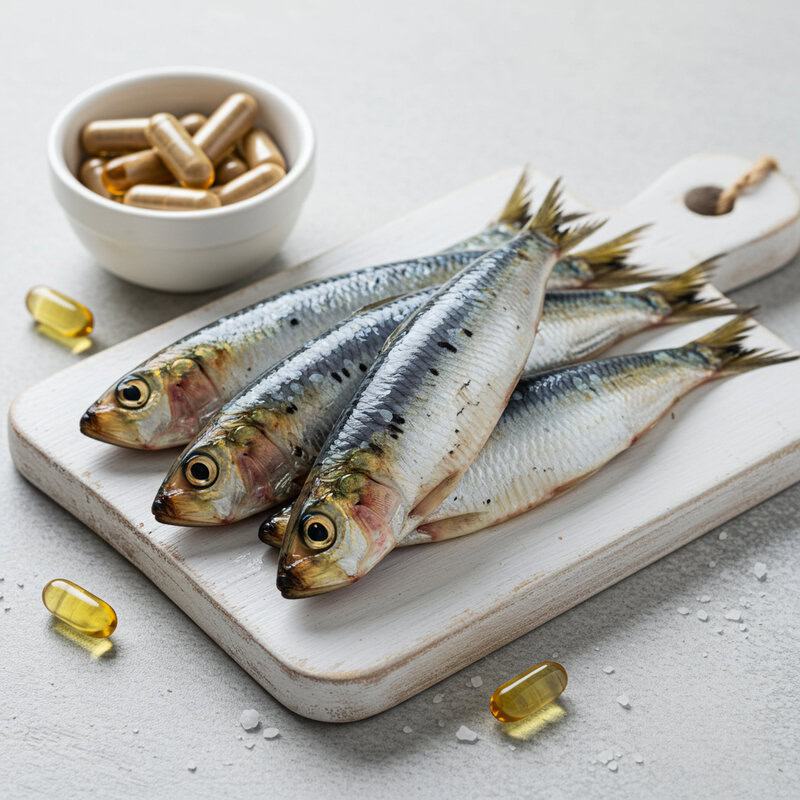
Sardines are a nutrient-rich oily fish renowned for their abundance of omega-3 fatty acids, including EPA and DHA, which help lower inflammation, decrease triglyceride levels, and support arterial repair and flexibility (National Institutes of Health). Additionally, sardines are an excellent natural source of vitamin D, which is essential for cardiovascular health and may help reduce arterial stiffness and blood pressure (Healthline).
Compared to other oily fish such as mackerel, anchovies, and salmon, sardines offer similar omega-3 benefits but have the added advantage of being lower in mercury due to their small size and short lifespan. Sardines are also typically more affordable and widely available canned, making them a convenient choice for heart-healthy meals. Enjoy sardines on whole-grain crackers, mixed into salads, tossed with pasta, or blended into spreads with herbs and lemon. Including sardines in your diet two to three times per week can provide a robust supply of omega-3s and vitamin D to help repair damaged arteries and promote overall vascular health.
22. Lentils

Lentils are a powerhouse of nutrition, offering a combination of soluble fiber, potassium, and plant-based protein that makes them particularly effective in supporting arterial health. The high fiber content in lentils helps lower LDL cholesterol levels, thereby reducing the risk of plaque buildup in artery walls (National Institutes of Health). Potassium in lentils supports healthy blood pressure and counteracts the effects of sodium, which is vital for maintaining flexible and resilient blood vessels.
When compared to other legumes like chickpeas, black beans, or navy beans, lentils are distinguished by their quick cooking time, versatility, and slightly higher protein content per serving. They are also easier to digest for many people and do not require soaking. Lentils make a heart-smart addition to soups, stews, salads, and grain bowls. Try making a warming lentil soup, tossing cooked lentils into salads, or preparing a lentil curry with aromatic spices. Incorporating lentils into your meals several times per week can help repair arterial damage, provide sustained energy, and support overall cardiovascular wellness (Healthline).
23. Oranges
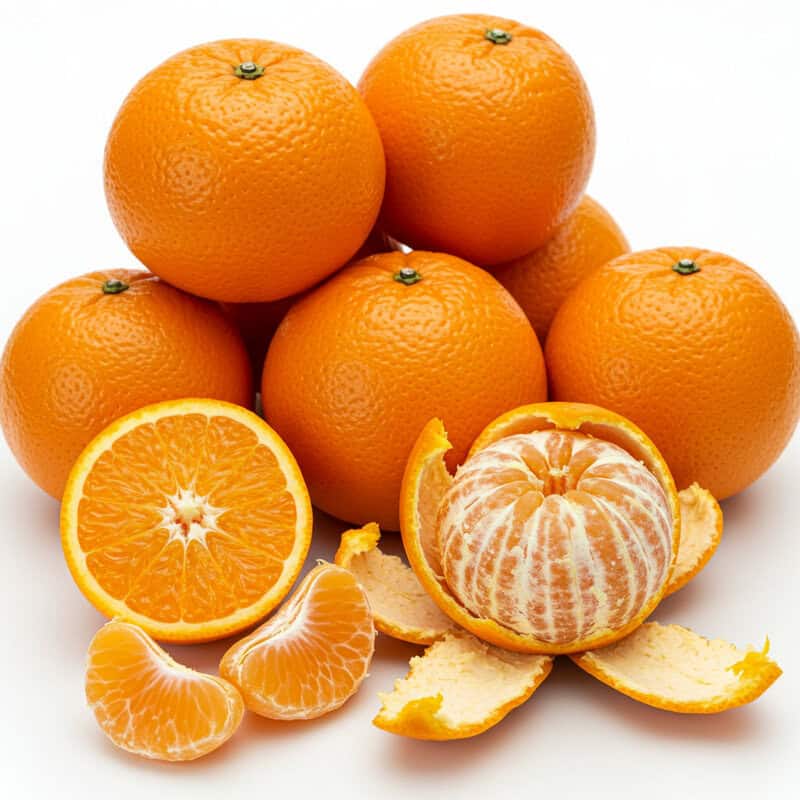
Oranges are celebrated for their high vitamin C content and abundance of flavonoids, both of which contribute significantly to arterial health. Vitamin C acts as a powerful antioxidant, protecting the endothelial lining of arteries from oxidative damage and supporting collagen synthesis for vessel repair. Flavonoids, such as hesperidin, have been shown to improve blood vessel function, reduce inflammation, and lower blood pressure (National Institutes of Health).
Clinical studies have found that regular orange consumption can help decrease arterial stiffness, a key factor in the prevention of atherosclerosis and maintenance of healthy blood flow. Whole oranges offer more fiber and nutrients than juice, but 100% pure orange juice can also provide benefits when consumed in moderation (Healthline). Enjoy oranges peeled and eaten as a snack, sliced into salads, or blended into smoothies. Freshly squeezed orange juice is a refreshing option, but limit intake to avoid excessive sugar. Including oranges in your daily diet supports arterial repair, boosts immune health, and adds a burst of natural sweetness to your meals.
24. Quinoa
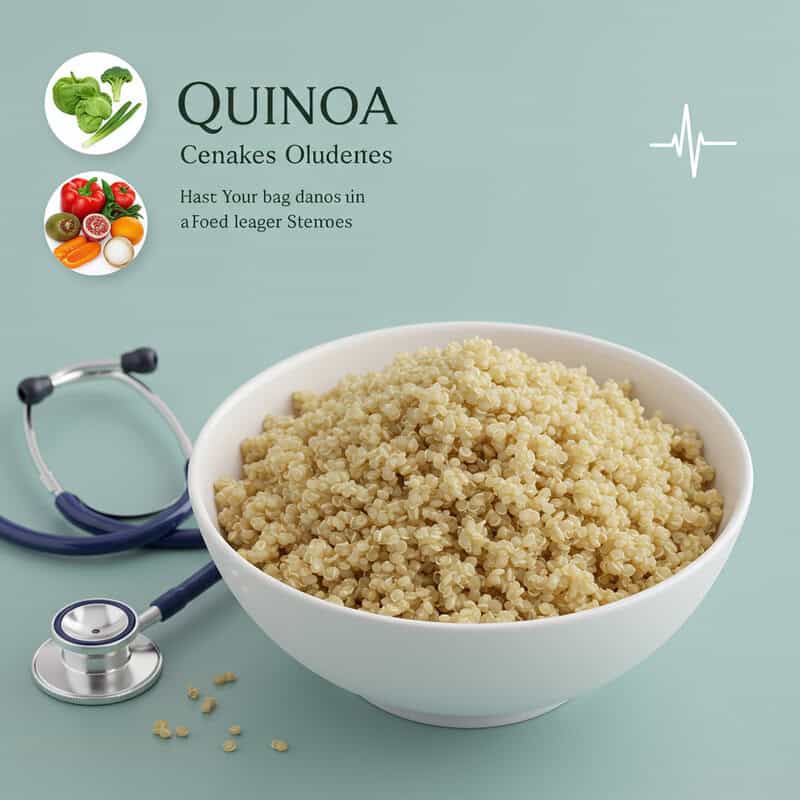
Quinoa is a unique whole grain that stands out for being a complete protein, meaning it contains all nine essential amino acids necessary for tissue repair and overall health. This makes quinoa especially valuable for supporting the body’s ability to repair damaged arterial walls. Additionally, quinoa is rich in magnesium, a mineral known to relax blood vessels, improve endothelial function, and reduce the risk of arterial stiffness and hypertension (National Institutes of Health).
Compared to white rice, quinoa offers more protein, fiber, and micronutrients while having a lower glycemic index, which supports more stable blood sugar levels and reduces cardiovascular risk (Healthline). Quinoa’s mild, nutty flavor and fluffy texture make it a versatile base for many dishes. Prepare quinoa as a substitute for rice in pilafs, stir into salads with fresh vegetables, or use it as a base for grain bowls topped with beans and leafy greens. Cooking quinoa is simple—just simmer one part quinoa with two parts water until tender. Including quinoa in your diet regularly can help repair arteries and enhance heart health.
25. Pumpkin Seeds
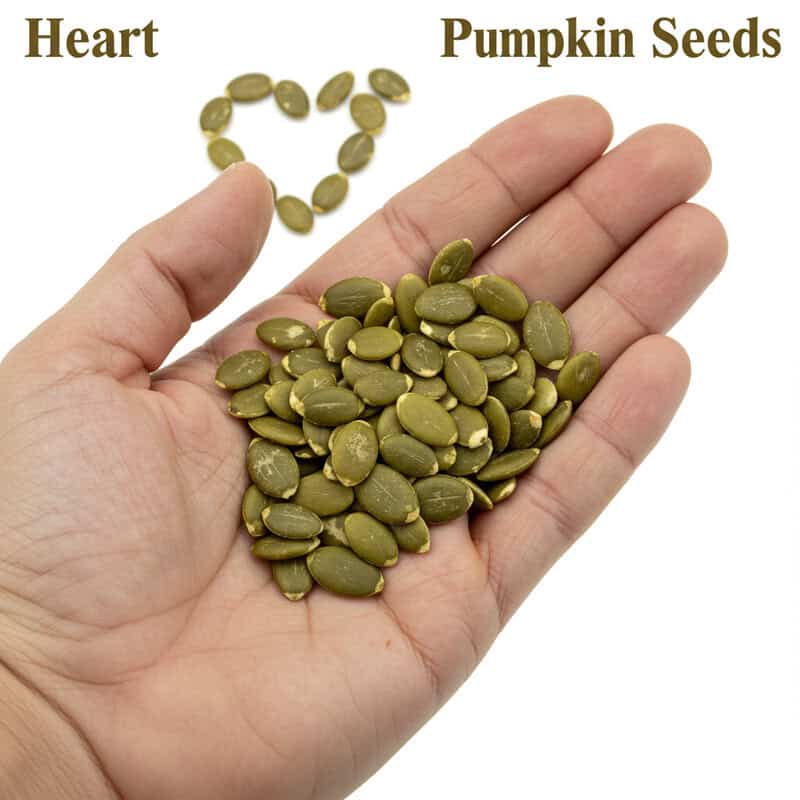
Pumpkin seeds, also known as pepitas, are an excellent source of magnesium, a mineral that plays a crucial role in relaxing blood vessels, regulating blood pressure, and supporting overall arterial repair. Magnesium deficiency is often linked to increased arterial stiffness and higher cardiovascular risk (National Institutes of Health). Pumpkin seeds are also rich in antioxidants, such as vitamin E and carotenoids, which help protect arterial walls from oxidative stress and inflammation.
Compared to sunflower seeds, pumpkin seeds generally provide more magnesium and zinc, making them particularly beneficial for cardiovascular and immune health (Healthline). Both seeds are healthy snack options, but pumpkin seeds stand out for their higher mineral content. Enjoy pumpkin seeds roasted and lightly salted as a snack, sprinkle them over salads, oatmeal, or yogurt, or blend them into homemade pesto and granola bars. A small handful (about one ounce) each day can help support arterial function and provide a satisfying, nutrient-dense boost to your meals.
26. Brussels Sprouts

Brussels sprouts are part of the cruciferous vegetable family and offer a robust package of fiber, antioxidants, and sulforaphane—a compound known for its anti-inflammatory and artery-protective properties. The fiber in Brussels sprouts assists with cholesterol removal and supports overall cardiovascular health, while sulforaphane helps activate enzymes that protect blood vessel walls from oxidative damage (National Institutes of Health). These combined benefits make Brussels sprouts an excellent choice for promoting arterial repair.
When compared to other cruciferous vegetables like broccoli, cauliflower, and cabbage, Brussels sprouts are notably high in vitamin K and contain similar amounts of sulforaphane and antioxidants (Healthline). To enjoy their health benefits, try roasting Brussels sprouts with olive oil and garlic, steaming them lightly, or shredding them raw into salads for a crunchy texture. Roasting brings out their natural sweetness and reduces bitterness, making them a delicious side dish. Including Brussels sprouts in your meals several times a week can help support healthy arteries and enhance the overall nutrient density of your diet.
27. Black Beans
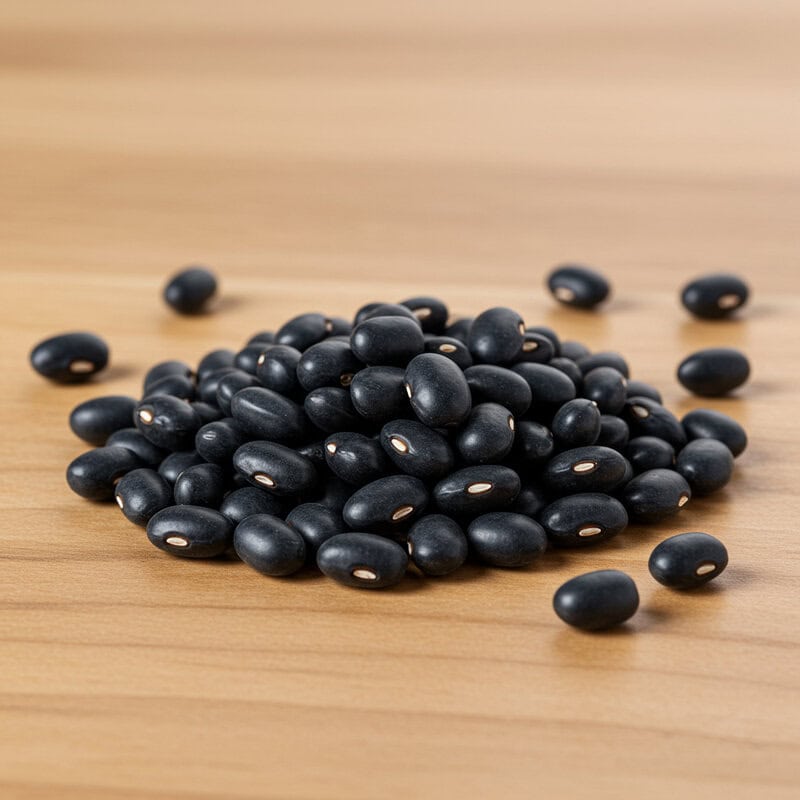
Black beans are a rich source of soluble fiber and flavonoids, both of which contribute significantly to arterial health. The soluble fiber in black beans helps lower LDL cholesterol by binding to cholesterol in the digestive tract and removing it from the body, reducing the risk of arterial plaque buildup (National Institutes of Health). Flavonoids, powerful plant compounds found in black beans, offer antioxidant and anti-inflammatory effects that help protect blood vessel walls and improve endothelial function.
Compared to kidney beans, black beans provide a similar amount of protein and fiber but stand out for their higher flavonoid content, contributing to their dark color and enhanced antioxidant profile (Healthline). Black beans are versatile and can be used in a variety of dishes, such as salads, soups, chili, and grain bowls. Try adding black beans to tacos, mashing them for a heart-healthy dip, or pairing them with brown rice for a complete protein. Consuming black beans several times per week supports arterial repair and delivers a flavorful boost of nutrition to your meals.
28. Kiwi
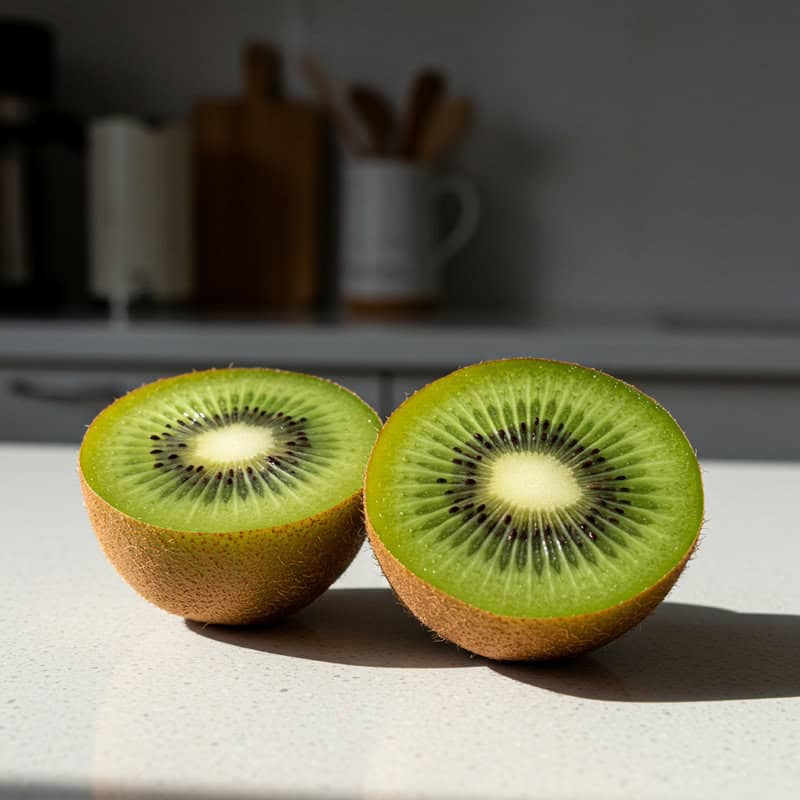
Kiwi is a vibrant fruit packed with vitamin C, providing more than the daily recommended intake in just one serving. Vitamin C is a powerful antioxidant that helps protect the arterial walls from oxidative stress and supports the synthesis of collagen, which is essential for arterial repair and elasticity (National Institutes of Health). Kiwi is also an excellent source of potassium, a mineral that helps regulate blood pressure and counteracts the negative effects of sodium on vascular health.
When compared to citrus fruits like oranges and grapefruits, kiwi offers similar—if not higher—levels of vitamin C and potassium, along with unique phytonutrients such as actinidin, which may support digestion and nutrient absorption (Healthline). Kiwi’s tart-sweet flavor and vibrant green color make it a delightful addition to fruit salads, smoothies, or yogurt parfaits. Enjoy kiwi as a quick snack by simply slicing it in half and scooping out the flesh, or dice it and mix with berries for a refreshing, heart-healthy salad. Including kiwi a few times per week can enhance your intake of artery-supportive nutrients and add variety to your fruit choices.
29. Seaweed
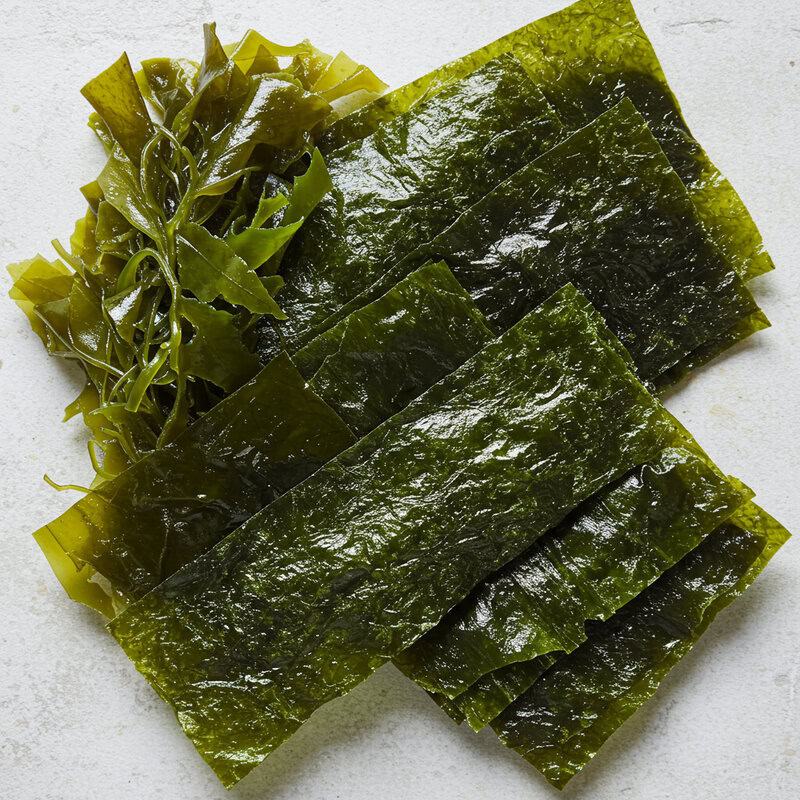
Seaweed, a staple in many Asian cuisines, is rich in iodine and antioxidants such as carotenoids and flavonoids. Iodine is crucial for healthy thyroid function, which indirectly supports cardiovascular health by regulating metabolism and blood pressure (National Institutes of Health). The antioxidants found in seaweed help protect arterial walls from oxidative damage and promote the repair and maintenance of blood vessels.
There are several types of edible seaweed, including nori, wakame, and kelp. Nori is commonly used in sushi rolls and as a crispy snack, while wakame and kelp are often added to soups and salads (Healthline). Each variety offers unique flavors and nutrient profiles but all provide beneficial minerals and antioxidants. For a heart-healthy snack, try roasted nori sheets or sprinkle dried seaweed flakes over rice and vegetable dishes. Wakame and kelp can be rehydrated and tossed into salads or miso soup. Incorporating different types of seaweed into your diet a few times per week can enhance artery health, provide essential minerals, and add a savory umami boost to your meals.
30. Edamame
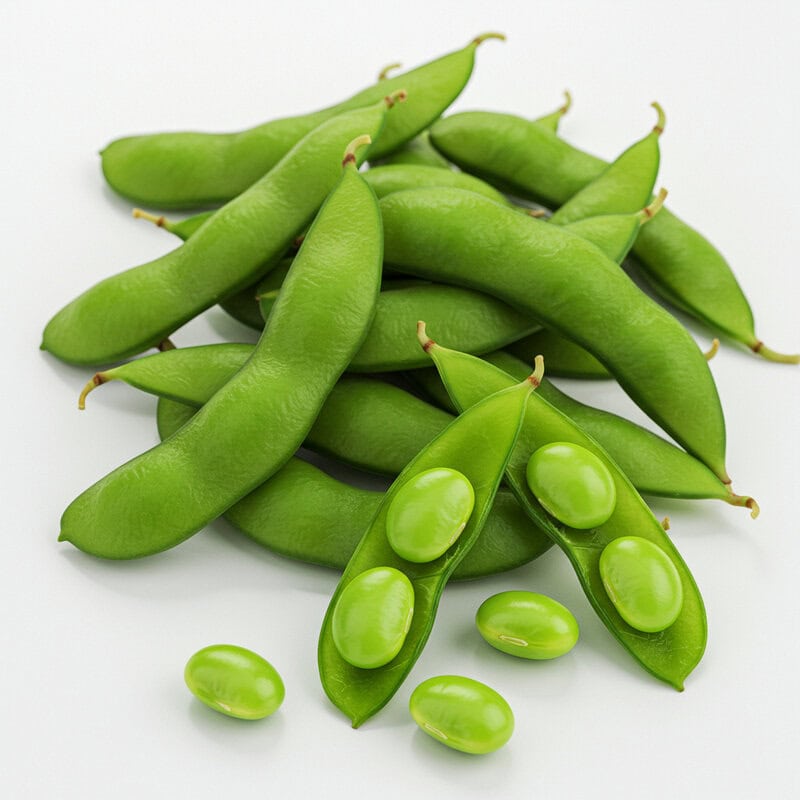
Edamame, or young soybeans, are a rich source of high-quality plant protein and isoflavones—phytonutrients that have been shown to benefit cardiovascular health. Isoflavones in edamame act as antioxidants, reducing inflammation and improving endothelial function, which is critical for arterial repair and flexibility (National Institutes of Health). The soy protein in edamame has also been shown to help lower LDL cholesterol, making it a valuable addition to a heart-healthy diet.
Compared to tofu, which is made from coagulated soy milk, edamame offers the advantage of being less processed and higher in fiber due to the presence of the whole bean (Healthline). Both edamame and tofu provide beneficial isoflavones and protein, but edamame’s natural crunch and mild flavor make it a versatile snack or meal addition. Enjoy steamed edamame sprinkled with sea salt as an appetizer, toss shelled edamame into salads or grain bowls, or blend into dips and spreads. Incorporating edamame into your meals a few times per week is a delicious way to support arterial repair and boost your intake of plant-based nutrients.
31. Beets
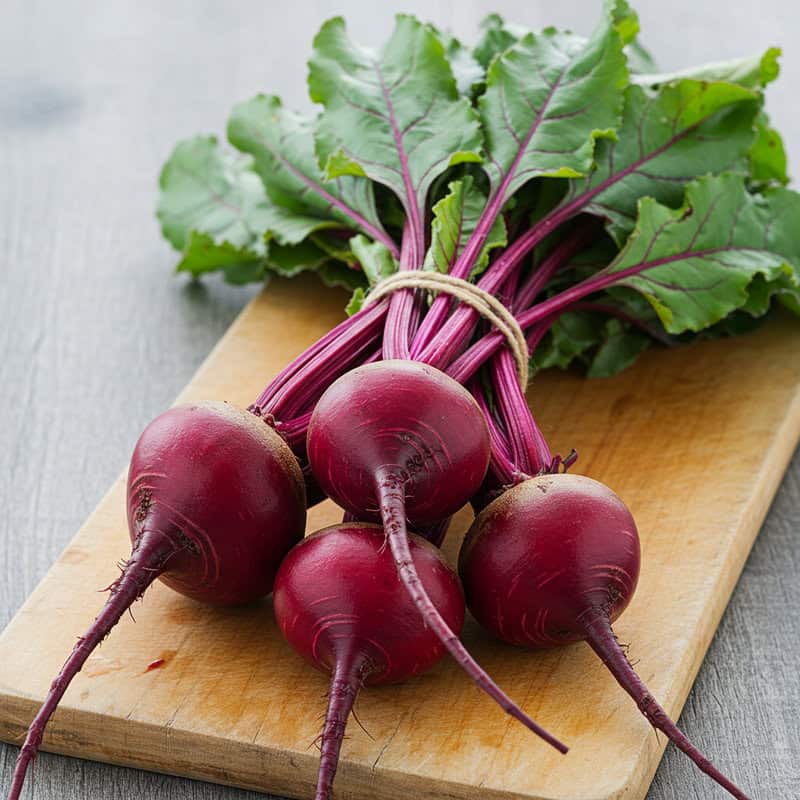
Beets are an excellent source of dietary nitrates, which the body converts into nitric oxide—a compound that relaxes and dilates blood vessels, improving blood flow and reducing arterial stiffness. This process supports the repair of damaged arteries and helps lower blood pressure, making beets a valuable addition to a cardiovascular-friendly diet (National Institutes of Health). Studies have shown that regular beet consumption can enhance endothelial function and increase exercise performance by improving oxygen delivery to tissues.
When comparing whole beets to beet juice, both provide beneficial nitrates, but whole beets also offer more fiber and a broader range of nutrients, including folate and vitamin C (Healthline). However, beet juice can be a convenient way to quickly boost nitrate intake, especially before physical activity. To enjoy beets, try roasting, steaming, or boiling them for salads, blending cooked beets into smoothies, or making a vibrant beet hummus. Grated raw beets add color and nutrition to slaws and wraps. Including beets or beet juice a few times a week can help promote healthy blood flow and support arterial repair.
32. Barley

Barley is a whole grain that stands out for its high concentration of beta-glucan, a soluble fiber known to lower LDL cholesterol and support arterial health. Beta-glucan works by binding to cholesterol in the digestive tract and promoting its excretion, thereby reducing the risk of arterial plaque buildup (National Institutes of Health). Barley also contains important minerals such as selenium and magnesium, which contribute to overall cardiovascular wellness.
Compared to oats, barley offers a similar amount of beta-glucan fiber but provides a different texture and flavor, making it a versatile option for diversifying your whole grain intake (Healthline). Barley’s chewy texture is ideal for hearty soups and stews, while cooked and cooled barley can be tossed into salads with fresh vegetables, legumes, and herbs. Try adding barley to vegetable soup, making a barley and bean salad, or using it as a base for grain bowls. Including barley in your meals a few times a week can help lower cholesterol, support arterial repair, and add variety to a heart-healthy diet.
33. Blackberries
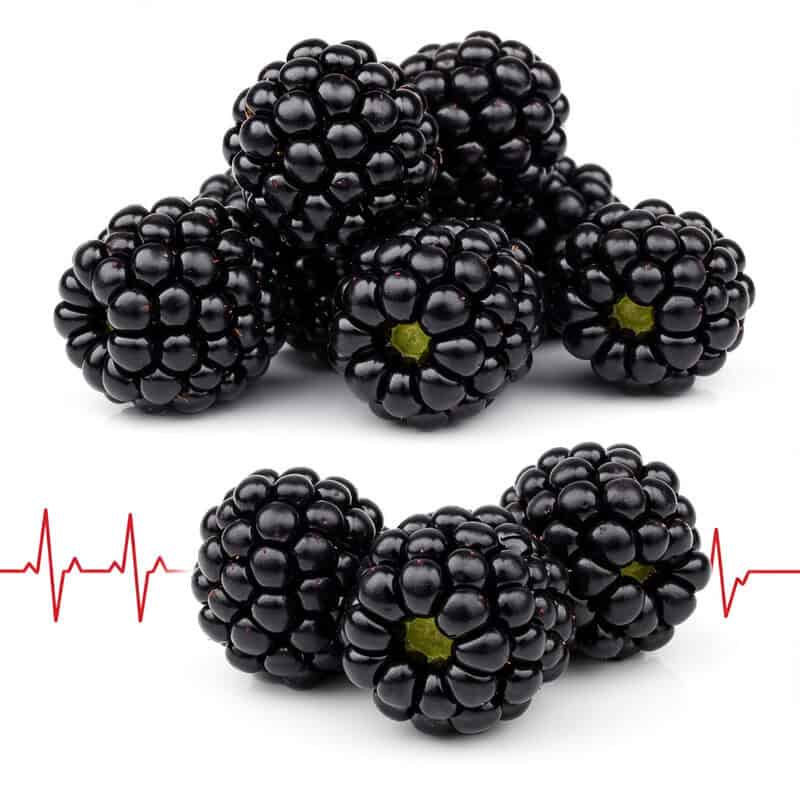
Blackberries are rich in polyphenols, particularly anthocyanins, which are potent antioxidants shown to reduce inflammation and oxidative stress in arterial walls. These compounds help protect the endothelium, support arterial repair, and lower the risk of developing cardiovascular disease (National Institutes of Health). Blackberries are also an excellent source of vitamin C, which further contributes to arterial health by supporting collagen production and acting as a free-radical scavenger.
When compared to raspberries, blackberries generally provide more vitamin C and a higher content of anthocyanins, while both offer impressive fiber and antioxidant profiles (Healthline). Blackberries make a flavorful and convenient snack on their own, can be added to yogurt or oatmeal, or blended into smoothies for a nutrient boost. They also pair well with salads, whole grain cereals, and healthy desserts. Aim to include blackberries in your diet a few times per week to benefit from their polyphenols, vitamin C, and fiber, all of which play a role in supporting healthy, resilient arteries and overall cardiovascular wellness.
34. Sweet Potatoes
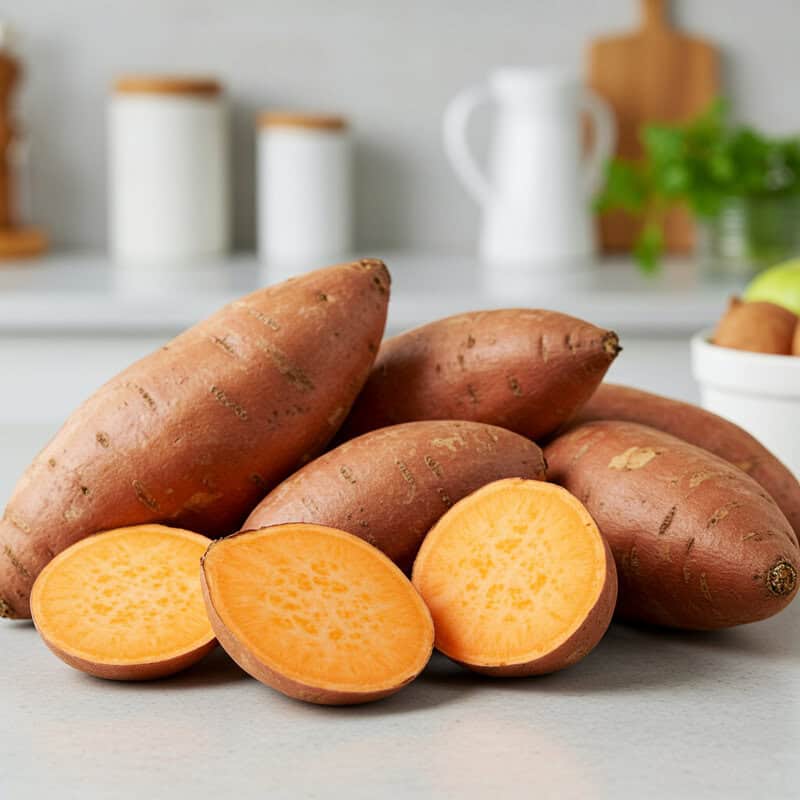
Sweet potatoes are a nutrient-dense root vegetable rich in beta-carotene, an antioxidant that the body converts to vitamin A. Beta-carotene helps reduce inflammation and oxidative stress in arterial walls, supporting endothelial health and arterial repair (National Institutes of Health). Sweet potatoes are also high in potassium, a mineral essential for maintaining healthy blood pressure levels and counteracting the effects of sodium on arteries.
Compared to white potatoes, sweet potatoes boast a lower glycemic index, more fiber, and significantly higher levels of beta-carotene and potassium (Healthline). This makes them a superior choice for those focused on cardiovascular and arterial health. Sweet potatoes can be enjoyed in a variety of ways—roasted as a side dish, mashed with herbs and olive oil, or baked into fries. Add them to grain bowls, soups, or salads for a nutrient boost, or use them as a base for plant-based burgers. Including sweet potatoes in your meals several times a week offers a delicious and colorful way to support arterial repair and overall heart health.
35. Sunflower Seeds
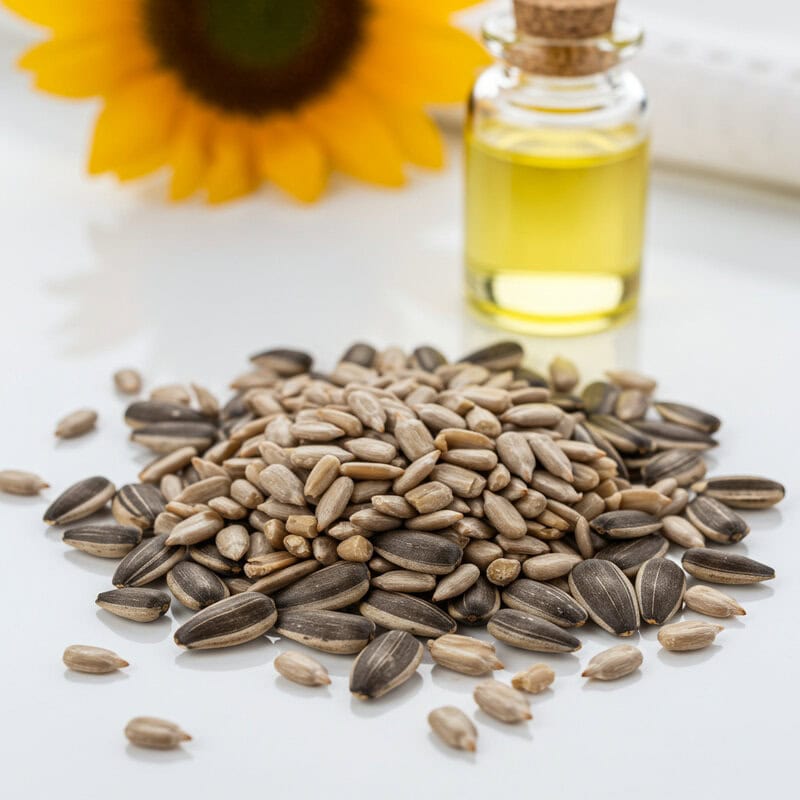
Sunflower seeds are a valuable source of vitamin E, a potent antioxidant that helps protect arterial walls from oxidative damage and inflammation. Vitamin E has been shown to reduce the risk of arterial plaque formation and enhance endothelial function, which is vital for maintaining flexible, healthy blood vessels (National Institutes of Health). In addition to vitamin E, sunflower seeds are rich in healthy polyunsaturated and monounsaturated fats, which help lower LDL cholesterol and support overall cardiovascular wellness.
Compared to pumpkin seeds, sunflower seeds provide more vitamin E but generally less magnesium and zinc (Healthline). Both seeds are excellent choices for heart-healthy snacking, each offering a unique nutritional profile. Sunflower seeds can be enjoyed raw or roasted as a convenient snack, sprinkled over salads, yogurt, or oatmeal, or blended into homemade seed butters or energy bars. A small handful—about one ounce—daily adds a crunchy texture and a dose of artery-protective nutrients to your meals, making sunflower seeds a smart and tasty addition to a heart-supportive diet.
36. Pears

Pears are an excellent source of soluble fiber, particularly pectin, which is known for its ability to lower LDL cholesterol and promote the repair of arterial walls. This fiber binds to cholesterol in the digestive tract, helping to remove it from the body and reducing the risk of plaque buildup (National Institutes of Health). Pears also provide a range of antioxidants, including vitamin C and flavonoids, that help combat inflammation and oxidative stress in blood vessels.
Compared to apples, pears offer a similar profile of fiber and antioxidants but tend to be less acidic and slightly higher in certain micronutrients such as copper and vitamin K (Healthline). Pears are juicy and sweet, making them a delicious snack on their own or sliced into salads, oatmeal, or yogurt. Try baking or poaching pears for a warm, heart-healthy dessert, or pairing them with a handful of nuts for a balanced snack. Eating pears with the skin maximizes fiber and antioxidant intake. Including pears regularly in your diet can help support arterial repair, digestive health, and overall wellness.
37. Soy Milk

Soy milk is a popular plant-based beverage that offers a unique combination of plant sterols and high-quality protein, both of which contribute to arterial and cardiovascular health. Plant sterols in soy milk help reduce the absorption of cholesterol in the digestive tract, leading to lower LDL cholesterol levels and a reduced risk of arterial plaque buildup (National Institutes of Health). The protein content in soy milk is comparable to that of cow’s milk and provides all essential amino acids, making it a complete protein source.
When compared to dairy milk, soy milk is naturally cholesterol-free and lower in saturated fat, both beneficial for heart and arterial health. Compared to almond milk, soy milk offers more protein and often contains added calcium and vitamin D for bone support (Healthline). Enjoy soy milk as a base for smoothies, poured over whole grain cereals, or used in coffee and tea. Opt for unsweetened varieties to avoid added sugars. Including soy milk in your diet can help support arterial repair, provide plant-based protein, and offer a nutritious alternative to traditional dairy beverages.
38. Brown Rice
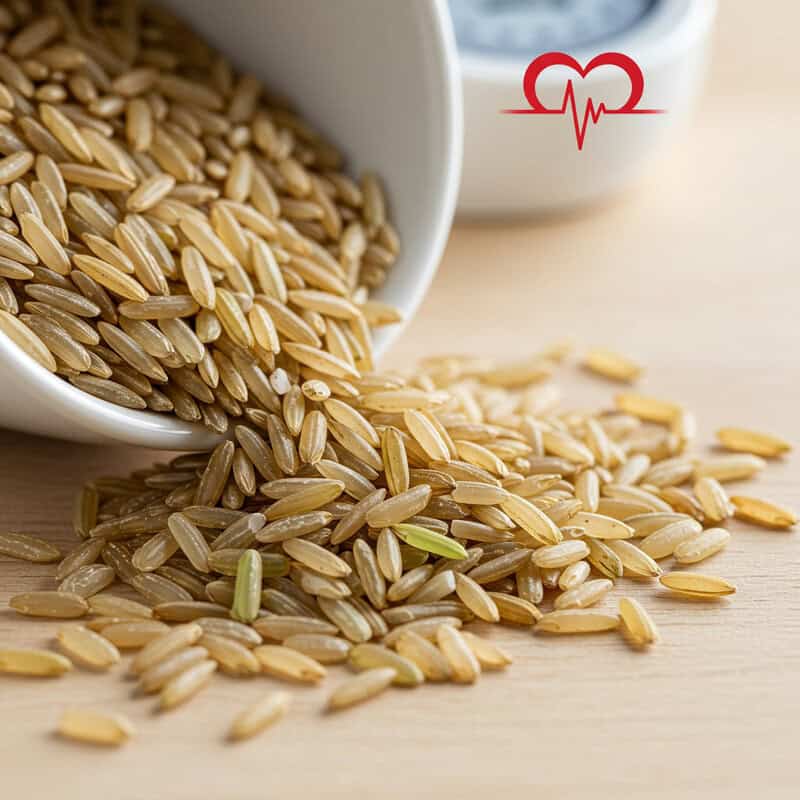
Brown rice is a whole grain that retains its bran and germ layers, providing a rich source of dietary fiber and magnesium, both essential for arterial health. The fiber in brown rice aids in lowering LDL cholesterol and helps maintain healthy blood sugar levels, reducing the risk of arterial plaque buildup and supporting vascular repair (National Institutes of Health). Magnesium in brown rice assists in relaxing blood vessels, improving blood flow, and lowering blood pressure.
Compared to white rice, brown rice offers more fiber, vitamins, and minerals, as the refining process strips white rice of these beneficial nutrients (Healthline). Brown rice has a nuttier flavor and chewier texture, making it a versatile base for a variety of dishes. Pair brown rice with beans, stir-fried vegetables, or grilled salmon for a heart-healthy meal. It can also be used in grain bowls, as a side for curries, or in stuffed peppers. Including brown rice in your diet a few times per week can help support arterial repair, improve digestion, and provide lasting energy.
39. Arugula
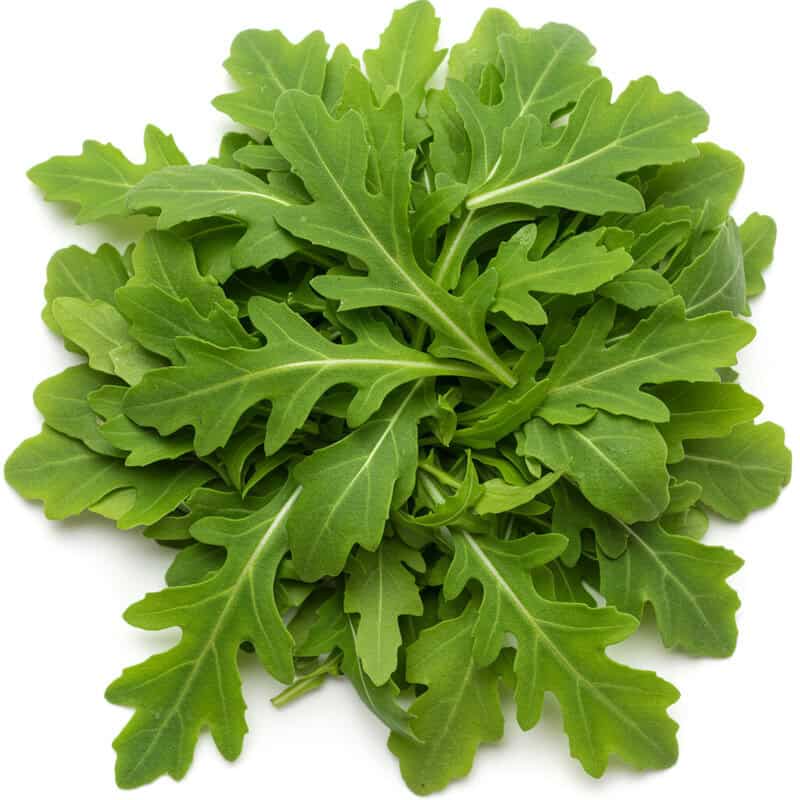
Arugula, also known as rocket, is a leafy green vegetable celebrated for its high nitrate content, which the body converts into nitric oxide. Nitric oxide helps relax and dilate blood vessels, improving circulation, reducing blood pressure, and aiding in the repair of arterial walls (National Institutes of Health). In addition to nitrates, arugula contains antioxidants such as vitamin C, beta-carotene, and polyphenols, which protect blood vessels from oxidative stress and inflammation.
When compared to other leafy greens like spinach and kale, arugula stands out for its peppery flavor and particularly high nitrate levels, though all these greens provide heart-healthy nutrients (Healthline). Arugula’s tender leaves make it ideal for fresh salads, where it can be combined with citrus fruits, berries, or nuts for extra nutrition. It also works well as a topping for whole grain pizzas, in wraps, or stirred into cooked grains just before serving. Including arugula in your weekly meal rotation can boost your intake of artery-supportive nitrates and antioxidants, adding both flavor and cardiovascular benefits to your diet.
40. Eggs (in moderation)

Eggs provide high-quality protein and choline, both of which play important roles in supporting arterial and cardiovascular health. Choline is essential for cell membrane integrity and may help reduce inflammation in blood vessels. Recent research suggests that, for most people, moderate egg consumption does not significantly increase the risk of heart disease, especially when part of an overall healthy diet (National Institutes of Health). Eggs also contain antioxidants like lutein and zeaxanthin, which can help protect the arterial lining.
When comparing egg types, pasture-raised or omega-3-enriched eggs often contain higher levels of beneficial omega-3 fatty acids than conventional eggs (Healthline). To maximize benefits and minimize potential risks, aim for moderation—up to one egg per day for most healthy individuals. Incorporate eggs into a balanced diet by pairing them with vegetables, whole grains, or avocado. For those with high cholesterol or increased cardiovascular risk, consult your healthcare provider for personalized guidance. By including eggs in moderation, you can enjoy their nutrient density while supporting arterial repair and overall heart health.
41. Blueberries
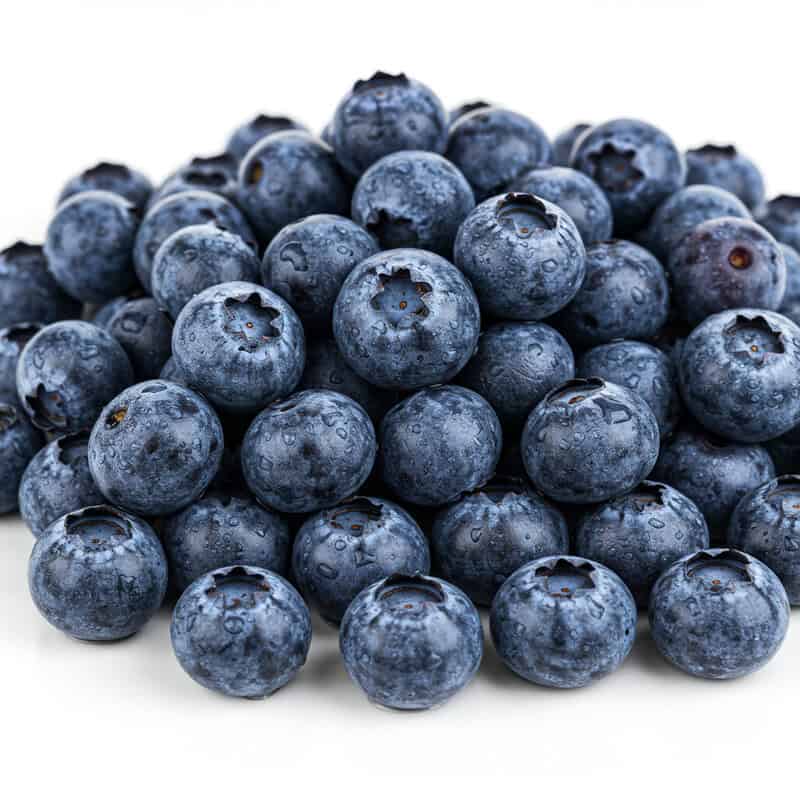
Blueberries are celebrated for their high content of anthocyanins, a group of powerful antioxidants that give the berries their deep blue color. Anthocyanins have been shown to reduce arterial inflammation, improve endothelial function, and protect blood vessels from oxidative damage, all of which are crucial for arterial repair and heart health (National Institutes of Health). Blueberries also provide dietary fiber, which helps maintain healthy cholesterol levels and supports optimal blood flow.
When compared to other berries such as strawberries, raspberries, and blackberries, blueberries stand out for their especially high anthocyanin content and strong antioxidant profile (Healthline). They are versatile and easy to add to many meals, making them a convenient way to boost your heart health. For breakfast, sprinkle fresh or frozen blueberries over oatmeal, blend them into smoothies, or mix them into Greek yogurt with a sprinkle of nuts or seeds. Blueberries can also be baked into whole grain muffins or pancakes for a delicious, artery-supportive start to the day.
42. Red Bell Peppers

Red bell peppers are an excellent source of vitamin C and carotenoids, both of which help support the repair and maintenance of healthy arteries. Vitamin C acts as a potent antioxidant, protecting the endothelial lining of blood vessels from oxidative stress and supporting collagen synthesis, which is essential for vascular strength and flexibility (National Institutes of Health). Carotenoids, such as beta-carotene and lutein, further enhance the pepper’s antioxidant profile, reducing inflammation and promoting arterial health.
Compared to green bell peppers, red bell peppers offer substantially higher levels of vitamin C and carotenoids, as they are fully ripened versions of green peppers (Healthline). This makes red peppers a superior choice for those seeking maximum cardiovascular benefits. Red bell peppers are delicious both raw and cooked: slice them into salads, use as crunchy dippers for hummus, roast them for sandwiches, or add to stir-fries and omelets. Regularly incorporating red bell peppers into your meals can help repair damaged arteries, reduce inflammation, and add vibrant color and flavor to your diet.
43. Watermelon
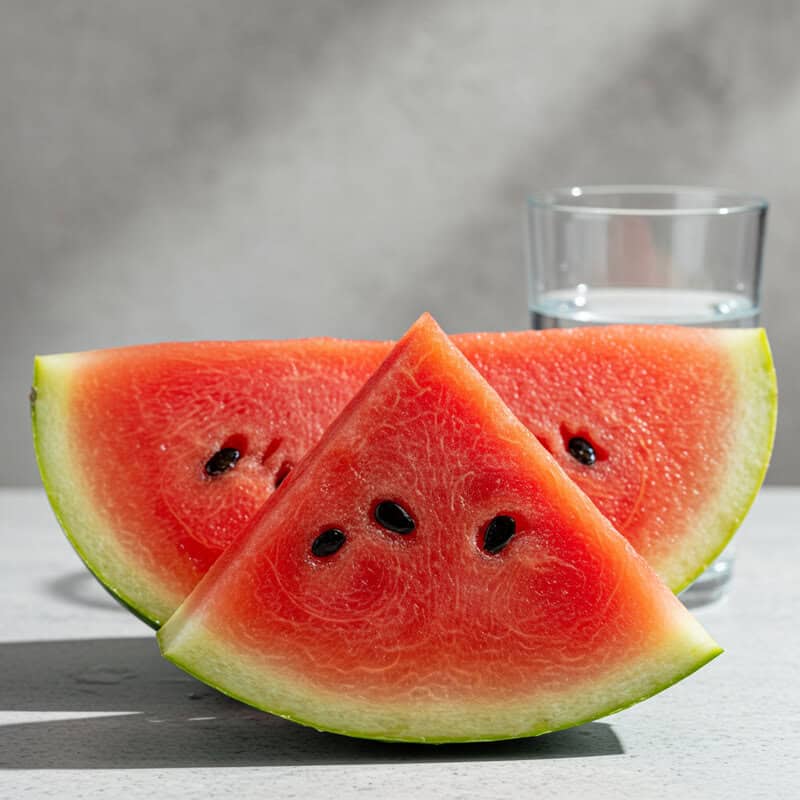
Watermelon is more than just a refreshing summer fruit—it’s a rich source of citrulline, an amino acid that the body converts to arginine and then to nitric oxide. Nitric oxide helps relax blood vessels, improve blood flow, and support arterial repair, making watermelon a heart-healthy choice (National Institutes of Health). Watermelon is also hydrating and provides valuable vitamins like vitamin C and A, which are important for vascular health.
Compared to other melons such as cantaloupe and honeydew, watermelon is particularly high in citrulline, which has been shown to help lower blood pressure and enhance endothelial function (Healthline). Watermelon makes an excellent snack on its own, cubed or balled and served chilled. It can also be tossed into fruit salads, blended into smoothies, or paired with feta cheese and mint for a savory-sweet salad. Frozen watermelon cubes make a healthy and cooling treat, especially in warmer months. Including watermelon in your diet during its peak season is a delicious way to promote arterial flexibility and support blood flow.
44. Grapefruit
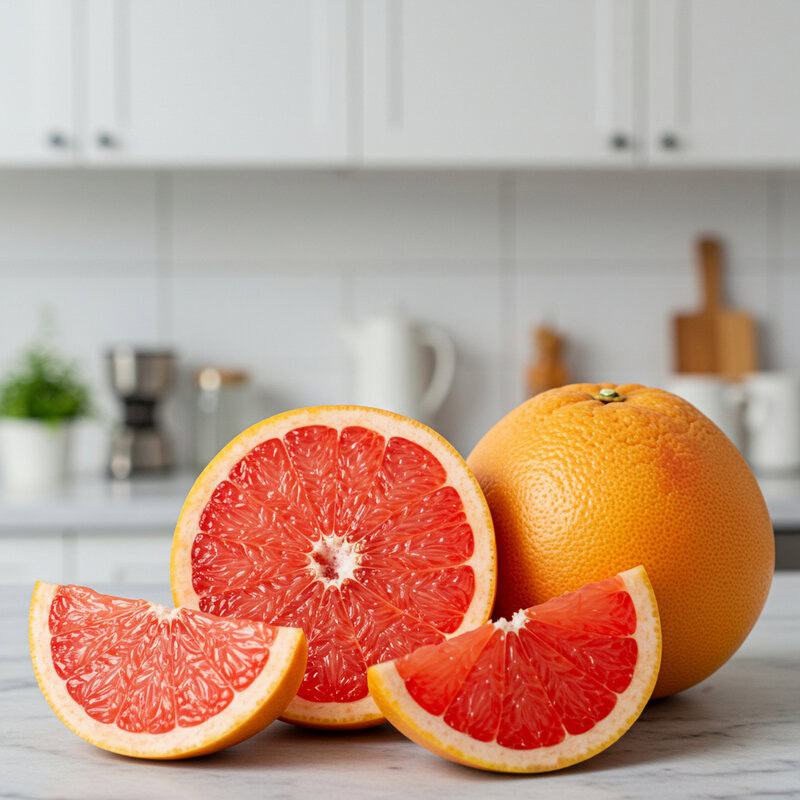
Grapefruit is a citrus fruit notable for its high vitamin C content and the presence of naringenin, a flavonoid with potent antioxidant and anti-inflammatory effects. Vitamin C supports the repair of arterial walls and helps protect blood vessels from oxidative stress, while naringenin has been shown to improve endothelial function and reduce cholesterol levels (National Institutes of Health). Together, these nutrients make grapefruit a valuable addition to a diet focused on arterial health.
It’s important to note, however, that grapefruit can interact with certain medications by affecting enzymes responsible for drug metabolism, potentially leading to higher levels of the drug in the bloodstream (U.S. Food & Drug Administration). Always consult your healthcare provider if you’re on prescription medications before adding grapefruit to your diet. Enjoy grapefruit segments on their own, toss them into salads for a burst of tartness, or add to yogurt and smoothies. Roasted or broiled grapefruit with a sprinkle of cinnamon makes for a unique and heart-healthy dessert. Including grapefruit in your weekly fruit rotation supports arterial repair while refreshing your palate.
45. Cashews

Cashews are a nutrient-dense nut, providing a generous amount of magnesium—an essential mineral that supports the relaxation of blood vessels, improves blood flow, and plays a key role in arterial repair. Magnesium deficiency is linked to increased risk of high blood pressure and arterial stiffness (National Institutes of Health). Cashews also offer healthy unsaturated fats, which help lower LDL cholesterol and support overall heart and arterial health.
Compared to almonds, cashews are slightly lower in fiber and vitamin E but still deliver a solid profile of minerals and heart-healthy fats (Healthline). Cashews’ creamy texture makes them a versatile snack and a popular base for plant-based sauces and dairy alternatives. Enjoy a small handful of raw or roasted cashews as a satisfying snack, blend them into smoothies for richness, or use them to make cashew butter. Cashews can also be incorporated into stir-fries, curries, or grain bowls for added crunch and nutrition. Including cashews in your diet in moderation can help support arterial repair and add variety to heart-healthy meal plans.
46. Garlic Scapes

Garlic scapes, the tender green shoots of the garlic plant, contain many of the same beneficial compounds found in garlic cloves, including allicin and other organosulfur compounds. These substances have been shown to help lower blood pressure, reduce arterial inflammation, and support the repair of blood vessel walls (National Institutes of Health). While garlic scapes are milder in flavor than mature garlic bulbs, they still offer cardiovascular benefits and can be enjoyed in larger quantities due to their gentle taste.
Compared to garlic cloves, scapes provide a subtler garlic essence and can be used more like a vegetable than a spice (Healthline). They are rich in fiber, vitamins, and minerals, and make a nutritious addition to a variety of dishes. Garlic scapes can be sautéed with olive oil, blended into pestos, added to stir-fries, or grilled as a side dish. Chopped scapes also add a fresh, garlicky kick to salads, omelets, or grain bowls. Including garlic scapes in your spring and early summer cooking is a delicious way to support arterial health while enjoying seasonal produce.
47. Mushrooms

Mushrooms are a valuable addition to a heart-healthy diet due to their beta-glucans and antioxidants. Beta-glucans, a form of soluble fiber found in certain mushroom varieties, have been shown to help lower cholesterol levels and support arterial repair by reducing inflammation in blood vessel walls (National Institutes of Health). Mushrooms also contain antioxidants such as ergothioneine and selenium, which protect cells from oxidative stress and enhance vascular health.
Different mushroom types offer distinct health benefits. Shiitake, maitake, and oyster mushrooms are particularly high in beta-glucans, while white button and cremini mushrooms still provide antioxidants and B vitamins (Healthline). Mushrooms are extremely versatile in the kitchen—sauté them as a side dish, add to omelets, toss into stir-fries, or use as a hearty base for soups and stews. Roasted portobello mushrooms can serve as a meat substitute in sandwiches or grain bowls. Regularly including a variety of mushrooms in your meals can help support arterial health, boost immune function, and add depth of flavor to your diet.
48. Pistachios
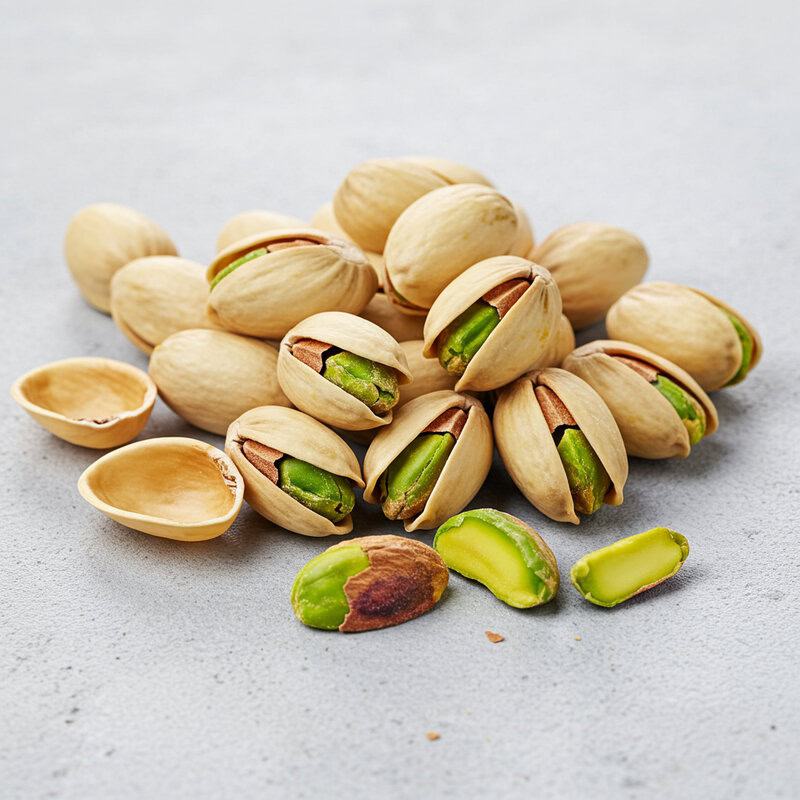
Pistachios are a heart-healthy nut rich in plant sterols and healthy monounsaturated and polyunsaturated fats, all of which contribute to lowering LDL cholesterol and supporting arterial repair. Plant sterols help block the absorption of cholesterol in the digestive tract, reducing the risk of plaque buildup in blood vessels (National Institutes of Health). Pistachios also provide antioxidants such as lutein and vitamin E, which help protect arterial walls from oxidative stress and inflammation.
When compared to other nuts, pistachios are relatively lower in calories and higher in potassium and vitamin B6, making them a nutrient-dense choice for cardiovascular health (Healthline). They are also naturally portion-controlled when purchased in their shells, which can help prevent overeating. Enjoy pistachios as a satisfying snack, sprinkle them over salads, blend into pesto, or use as a crunchy topping for oatmeal or yogurt. A small handful—about one ounce—daily is sufficient to reap their benefits. Including pistachios in your diet can add variety, flavor, and a boost of artery-supportive nutrients to your meals and snacks.
49. Artichokes

Artichokes are an excellent source of dietary fiber, which aids in lowering LDL cholesterol and supporting the repair of arterial walls. They are also rich in cynarin, a unique compound that stimulates bile production, enhances cholesterol excretion, and supports overall liver and cardiovascular health (National Institutes of Health). The combination of fiber and cynarin makes artichokes particularly effective in reducing the risk of arterial plaque buildup and improving vascular function.
Compared to other thistle vegetables, such as cardoons, artichokes are more widely consumed and offer a higher concentration of antioxidants and dietary fiber (Healthline). Artichokes can be enjoyed in a variety of ways—steam the whole head and enjoy the tender leaves dipped in olive oil or vinaigrette, roast artichoke hearts for a flavorful side, or toss them into pasta, salads, or grain bowls. Marinated or canned artichoke hearts are also convenient for quick meal additions. Regularly including artichokes in your diet can help support arterial health, promote healthy cholesterol levels, and add a unique Mediterranean flair to your meals.
50. Raspberries
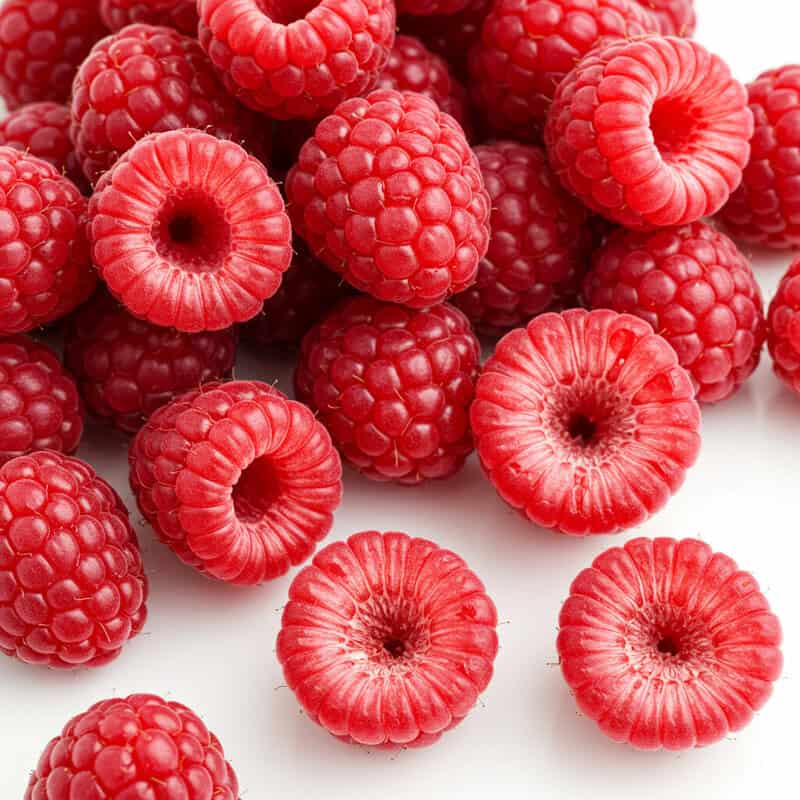
Raspberries are a vibrant berry loaded with polyphenols—especially ellagitannins and anthocyanins—which act as potent antioxidants to reduce oxidative stress and inflammation in the arterial walls. These compounds help protect endothelial cells and support the repair of blood vessels, contributing to improved arterial flexibility and reduced risk of cardiovascular disease (National Institutes of Health). Raspberries are also exceptionally high in dietary fiber, which aids in lowering LDL cholesterol and maintaining healthy blood sugar levels.
When compared to blackberries, raspberries provide a similar amount of fiber but are slightly higher in vitamin C and offer a distinct tart-sweet flavor (Healthline). Both berries are excellent choices for supporting arterial repair. Raspberries make a delicious snack on their own, can be added to yogurt, oatmeal, and cottage cheese, or blended into smoothies. For a healthy dessert, try layering raspberries with Greek yogurt and a sprinkle of granola, or add them to whole-grain muffins and pancakes. Including raspberries in your diet a few times per week provides a tasty and nutrient-rich boost for your heart and arteries.
Conclusion
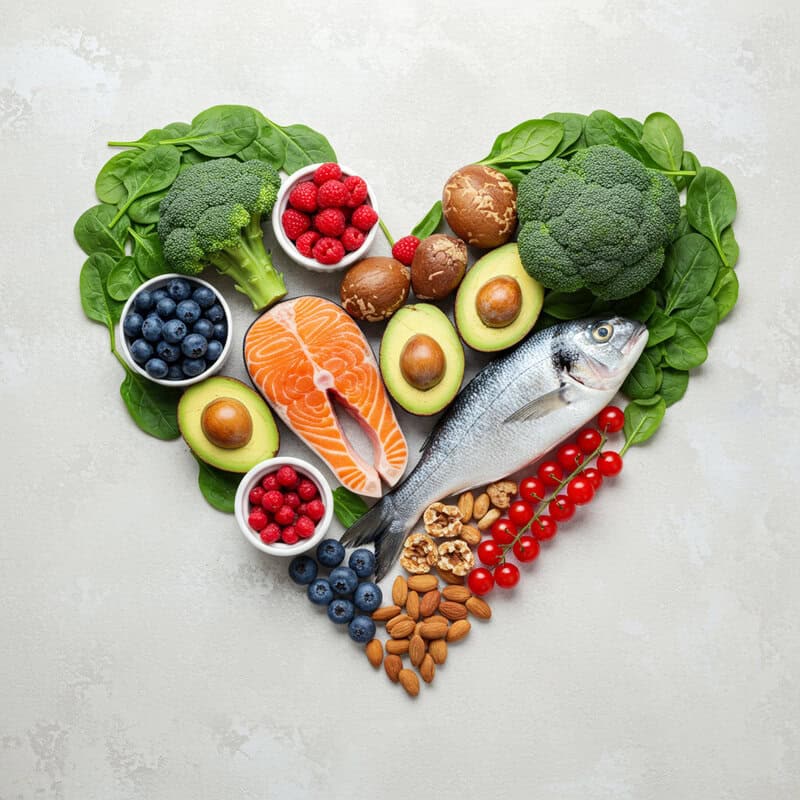
Maintaining healthy arteries is crucial for preventing cardiovascular disease and supporting overall wellness. As highlighted, a diet rich in nutrient-dense, antioxidant-packed foods can help repair damaged arteries and reduce the risk of future complications (World Health Organization). Given the often silent progression of arterial damage, it is essential to address risk factors early and with urgency. Alongside a heart-healthy diet, regular health screenings and proactive consultations with healthcare providers are vital for early detection and effective management (Centers for Disease Control and Prevention). By making informed dietary choices and prioritizing preventive care, you can actively support your arterial and cardiovascular health.
Disclaimer
The information provided in this article is for general informational purposes only. While we strive to keep the information up-to-date and correct, we make no representations or warranties of any kind, express or implied, about the completeness, accuracy, reliability, suitability, or availability with respect to the article or the information, products, services, or related graphics contained in the article for any purpose. Any reliance you place on such information is therefore strictly at your own risk.
In no event will we be liable for any loss or damage including without limitation, indirect or consequential loss or damage, or any loss or damage whatsoever arising from loss of data or profits arising out of, or in connection with, the use of this article.
Through this article you are able to link to other websites which are not under our control. We have no control over the nature, content, and availability of those sites. The inclusion of any links does not necessarily imply a recommendation or endorse the views expressed within them.
Every effort is made to keep the article up and running smoothly. However, we take no responsibility for, and will not be liable for, the article being temporarily unavailable due to technical issues beyond our control.





